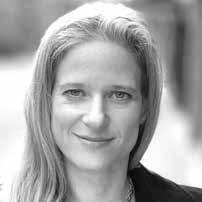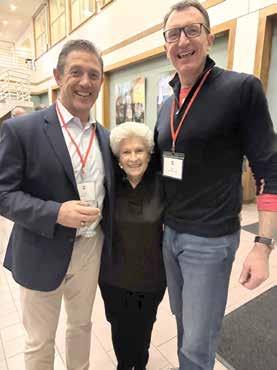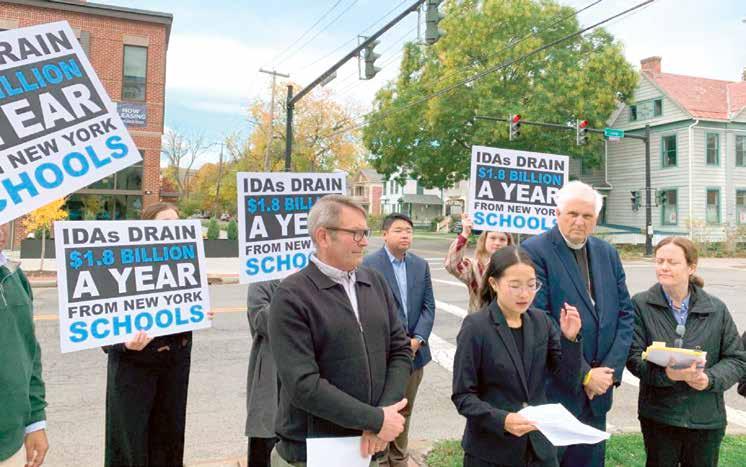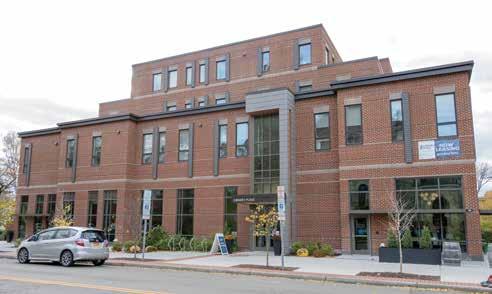




November is Lung Cancer Awareness Month, a time to shine some light on one of the biggest cancer killers in the world. Local healthcare professionals say they see dozens of lung cancer patients every year.
“Lung cancer is one of the most prevalent cancers in our community. Arguably, more prevalent than colon and breast cancer, but that varies,” says Cyndi Davis, Nurse Practitioner at Cayuga Health, a member of Centralus Health.
The CDC recommends patients between the ages of 50 and 80 who have a 20 pack-year smoking history and currently smoke, or have within the past 15 years, get screened. A 20 pack-year smoking history means smoking an average of one pack of cigarettes per day over 20 years.
“If you are a smoker, had asbestos exposure, or think you might need lung cancer screening, you should talk to your doctor about a referral,” says Hannah Potts, Nurse Practitioner at Cayuga Health, a member of Centralus Health.
The risk of developing lung cancer increases the more you smoke and the longer you smoke. Doctors encourage people to stop as soon as they can. Though the health benefits of quitting start immediately, long term effects can last up to 15 years.
“Once you stop smoking, you still have that built-up risk of lung cancer from all the accumulated exposure over the years. This makes annual screenings necessary to reduce risk. You don’t just get screened once. This isn’t like a colonoscopy where you get screened once and then wait 10 years. This risk is ongoing,” says Dr. Aleksandr Kalininskiy, pulmonologist at Arnot Health, a member of Centralus Health.
If providers see any unusual activity in a lung screening, they can diagnose and treat lung cancer early.
Once a year, patients get a low dose CT scan to look for spots or nodules. Your provider will show you the images of what your lungs look like. If there is a spot, Dr. Kalininskiy says most patients ask what will happen next.
categorize a lung cancer patient with the type and stage of cancer they have, then our conversation with the patient is very truthful,” Dr. Khan says.
The best approach to treatment varies based on the results of the biopsy. Options may include curative resection or a formulated plan to help patients live with the diagnosis. If a patient is eligible for surgery, doctors must consider the patient’s individual health risks and factors. Before moving forward with surgery, providers will order pulmonary testing to better understand lung function.
“The testing gives us their baseline lung capacity, which helps us understand how much we can take out.”

“Depending on how big it is, what it looks like and where it is, there are different ways to deal with it. If we’re not too concerned, sometimes watching and waiting is the way to go.”
Lung cancer is slow growing. If the nodule reaches a point where it becomes concerning, providers will order a biopsy, discuss results, plan surgery and start treatment if necessary.
A lung cancer diagnosis can be scary. When patients get the news, Dr. Ahmed Khan, thoracic surgeon, says people ask the same serious, daunting question: How long do I have to live? Surgeons like Dr. Khan help people move forward by helping them understand the scope of their disease. He spends the first visit with patients explaining what’s happening with their disease, approaching each situation based on the form of lung cancer and its stage.
“That explanation is difficult in lung surgery because there are a lot of big words. There are different types of cancer: small cell, non-small cell. If we can

Arnot Health and Cayuga Health, members of Centralus Health, offer lowdose lung cancer screenings to eligible patients.
Patients who get treatment early, are open about their health habits, and follow their plan of care have a higher chance of successful treatment. The goal is to address lung cancer before it has the chance to spread.
“Knowing the patient from head to toe is what makes us good at what we do,” Dr. Khan says.
Arnot Health offers a wide range of pulmonary diagnostic services at Arnot Ogden Medical Center, 600 Roe Avenue, Elmira and Ira Davenport Memorial Hospital, 7571 NY-54, Bath.
Cayuga Health Pulmonology and Sleep Services are offered at Cayuga Medical Center, 201 Dates Drive, Suite 301, Ithaca; Schuyler Hospital, 220 Steuben Street, Montour Falls; 260 Tompkins Street, Cortland.
By Lorien Tyne
Known for its picturesque waterfalls and Cayuga Lake views, Tompkins County is also home to flourishing vineyards that contribute to the Finger Lakes’ national recognition as a premiere wine region.
This October, the Finger Lakes was named American Wine Region of the Year by Wine Enthusiast, a global media company regarded for its expertise on all things wine. Through decades of growth, the region now has more than 140 wineries and over 10,000 acres of vineyard.
In Tompkins County, vineyards and wineries such as Six Mile Creek Vineyard, Frontenac Point Vineyard & Estate Winery, Bet the Farm Winery and others, produce quality local wine and contribute to the area’s tourism economy.
Amy Navor, executive director of Finger Lakes Wine Alliance, told the Ithaca Times that this recognition is a reflection of decades of investment, innovation and determined vision.
“We’re thrilled that this award honors the farmers, winemakers, and families who bet on this region long before the world was watching,” Navor said. “It’s not about one la-

bel or vintage, it’s about a region that’s come of age with authenticity and purpose.”
While the Enthusiast speaks on the beauty of the Finger Lakes and the quality of its wine production, it highlights the resilience needed for vineyards to thrive in New York’s climate.
Navor said the region’s grapes are nurtured through a “slow, balanced ripening” made possible by the conditions near the 11 lakes. Along with sparkling wine,
Navor said the region is best known for its Riesling, Chardonnay, Cabernet Franc, and expressive heirloom varieties. The region’s cold conditions are an obstacle for vineyards and climate change has brought more irregularity in weather as well as earlier grape harvests. Carol Doolittle, co-owner of Frontenac Point Vineyard & Estate Winery in Trumansburg, said that
Continued on Page 7
By Philip O’Dell
The City of Ithaca is currently accepting applications for individuals interested in serving on its Zoning Advisory Committee (ZAC). The ZAC is a volunteer body that helps guide the city’s updates to zoning code, reviewing proposed changes and providing recommendations to Common Council. The deadline to apply is Nov. 17.
Senior Planner Maura Baldiga anticipates ZAC will have 10 to 15 members and its first meeting is tentatively scheduled for late this year or early 2026. The city plans to finalize the committee by the end of the year and will then notify all applicants of their selection status. Interested candidates can apply using an online form on the Planning and Development section of the city's website, under the "Current Planning Projects" and "Zoning Rewrite" pages. Printed applications are also available at the Planning Office on the third floor of City Hall. The application process is open to all, with no residency requirement. However, diverse perspectives are encouraged from individuals who live in, own property in, or work within the City of Ithaca.
ZAC will have one to two meetings per month over a period of 18 months to two years. Participants will generate code improvement ideas, provide feedback on drafts, and lead community outreach efforts. Baldiga said a comprehensive rewrite is needed to fully implement the city’s vision for future land use.
“It’s an exciting opportunity to look holistically at the zoning code and ensure that it’s meeting the current needs of the city,” Baldiga said.
The committee will take the lead on Ithaca's comprehensive zoning rewrite, a major undertaking that will essentially replace the current Chapter 3.25 of the city code. The ZAC will collaborate closely with City Planning and Development staff and a selected consultant team to oversee the project. To hire this team, the city posted a request for proposal (RFP), also due on Nov. 17. The committee will guide this process by reviewing the aims outlined in Plan Ithaca and comparing them to the current code, ensuring the resulting rewrite addresses the entire city, expanding beyond the smaller, neighborhood-specific updates done previously.
A new report claims that Industrial Development Agency tax breaks violate the economic development section of the state constitution and strip public schools of critical tax revenue. Design by Kaiden Chandler, Photography by Lucia Iandolo and from Ithaca Times File.
@ ithacatim E s com
s C ott M anson , a ssociat E p ublish E r F r EE lanc E rs : Barbara Adams, G. M Burns, Charley Githler, Stephen Burke, Bill Chaisson, Ross Haarstad, Steve Lawrence, Marjorie Olds, Henry Stark, Peter Rothbart, Austin Lamb, Clement Obropta, Jake Sexton, Kira Walter, and Vasant Alex Laplam THE ENTIRE CONTENTS OF THE ITHACA TIMES ARE COPYRIGHT © 2025 BY PATHWAYS TO EQUITY, LLC. All rights reserved. Events are listed free of charge in TimesTable. All copy must be received by Friday at noon. The Ithaca Times is available free of charge from various locations around Ithaca. Additional copies may be purchased from the Ithaca Times offices for $1. SUBSCRIPTIONS: $139 one year. Include check or money order and mail to the Ithaca Times, PO Box 27, Ithaca, NY 14851. ADVERTISING: Deadlines are Monday 5 p.m. for display, Tuesday at noon for classified. Advertisers should check their ad on publication. The Ithaca Times will not be liable for failure to publish an ad, for typographical error, or errors in publication except to the extent of the cost of the space in which the actual error appeared in the first insertion. The publisher reserves the right to refuse advertising for any reason and to alter advertising copy or graphics deemed unacceptable for publication. The Ithaca Times is published weekly Wednesday mornings. Offices are located at 109 N. Cayuga Street, Ithaca, NY 14850 607-277-7000, FAX 607277-1012, MAILING ADDRESS is PO Box 27, Ithaca, NY 14851. The Ithaca Times was preceded by the Ithaca New Times (1972–1978) and The
(1973–1978),
in
By Mark Syvertson
“DO YOU HAVE ANY IRRATIONAL FEARS OR PHOBIAS?”
NOTE: If readers wish to participate in the Ithaca Times’ Inquiring Photographer column, contact Mark Syvertson at marksyvertsonphotography@gmail.com

“Small furry things creep me out, like mice and squirrels.”
– Barb

“It's not a phobia but wooden cooking or eating utensils are so icky. Even wooden coffee stirrers.”
– Colleen

“I don’t know if this qualifies but I hate the sight of blood.”
– Ed

“Snakes. Even if they’re not venomous.”
– Kyle

“I don’t have any irrational fears. All of them are very rational.”
– Kevin
By Philip O’Dell
The City of Ithaca Planning and Development Board granted preliminary and final site plan approval to Grinspoon Hillel at Cornell’s proposed new building at its Oct. 28 meeting.
Grinspoon Hillel will construct a threestory, 23,190 square-foot building on a roughly half-acre vacant parcel located at 722 University Ave. on Cornell’s West Campus. This new structure will have a 5,665 square-foot footprint.
The four-level center, which includes one floor below grade, is designed to accommodate a comprehensive range of facilities, including educational and cultural spaces, worship areas, classrooms, student lounges, a café, a communal kitchen, and staff offices. Site improvements feature an entrance plaza, outdoor café and lounge areas, and seasonal landscaping. The project is situated in the university zoning district that guides development around Cornell University.
The structure's exterior will feature a contemporary glass and terracotta expression in a calm, cream-colored palette, complemented by new tree plantings alongside a nearby parking lot.
According to the Cornell Chronicle, the Grinspoon Hillel Center will own the facility and lease the land from Cornell.
Organizers raised over $34 million for construction costs and seek to fundraise $20 million for maintenance and programming.
Groundbreaking is slated for spring 2026.
Planning board members indicated the planned facility is expected to be among the university’s most architecturally impressive structures.

“I think this is going to be one of the most stunning buildings on the Cornell campus,” board member Andy Rollman said.
Board chair Emily Petrina said she looks forward to seeing the construction commence and praised the designs.
“Conceptually, it hits the mark and functionally it’s just well thought out,” Petrina said.
Cornell Hillel is currently located at Anabel Taylor Hall, 548 College Ave, on Cornell’s Central Campus. Due to limited space at its current location, the organization sought a new building to establish a hub for Jewish students to freely express their faith and cultivate pride in their identity, the Hillel campaign’s website says.
“We've envisioned a welcoming, inviting, modern, and secure Hillel Center minutes away from the heart of campus — a home-away-from-home and a space where Jewish students can feel they belong,” the website adds.

In a campaign video, Rabbi Ari Weiss, the Grinspoon Hillel CEO, described it as a state-ofthe-art facility designed to feel like a comfortable home. He said the first floor will feature a café, fireplace, and couches to create a welcoming, domestic setting. To inform the design, organizers spent the last four years interviewing Hillel directors and conducting architectural site visits across the country. Weiss said that although Grin-
spoon Hillel actively impacts thousands of Jewish students yearly across multiple campuses and hosts regular Shabbat dinners, feedback from students consistently indicated a desire for a newhome on campus.
“The Hillel building will also be a welcoming space for all Cornellians. We hope that student clubs and other faith traditions will use the space for their own programs. Through the building, we will connect and build bridges throughout the campus,” Weiss said.
In 2023, Cornell Hillel was renamed the Steven K. and Winifred A. Grinspoon Hillel Center for Jewish Community at Cornell, and organizers launched a $54 million capital campaign for the proposed facility’s construction, the Cornell Hillel website says.
Regarding environmental reviews, the planning board determined on Sept. 23 that the proposed construction would not have significant adverse impacts on the environment. Specifically, it was a negative declaration under the State and City Environmental Quality Review Acts (SEQRA/CEQRO) for the Cornell Hillel construction project. This finding was made after the planning board, serving as the lead agency, reviewed and accepted the Full Environmental Assessment Forms (FEAF) prepared by the applicant and planning staff. The negative declaration concluded the formal environmental review process for the project's site plan application.
By Philip O’Dell
Dryden Fiber kicked off its expansion of high-speed internet service into the Town of Caroline with a groundbreaking ceremony on Oct. 27 at the Caroline Town Hall. The nonprofit is New York state’s first and only publicly owned and operated fiber optic broadband service provider.
Attendees included representatives from the towns of Dryden and Caroline, as well as the offices of Gov. Kathy Hochul, U.S. Sen. Chuck Schumer, and State Assemblymember Anna Kelles.
Dryden Fiber Executive Director Dave Makar described the event as a historic one for bringing broadband to the town.
“The goal of this will be to bring fiber to every single household to where their driveway meets the road,” Makar said. “If you live in the Town of Caroline, you will have access to fiber optic internet.”
The New York State ConnectAll Office’s Municipal Infrastructure Program awarded the towns of Dryden and Caroline a combined $11.6 million in grants, originating from the American Rescue Plan Act of 2021, allowing Dryden Fiber to reach 2,711 households and over 6,000 residents by constructing 143 miles of new fiber, according to the nonprofit.
Makar said that the grant specifically targets about 544 households in the Town of Caroline that currently lack reliable broadband access, a significant portion of the town’s total 1,200 households.
Gov. Kathy Hochul established ConnectALL in 2022 “to build New York State’s digital infrastructure and connect all New Yorkers through the internet,” according to



Tompkins County Administrator Korsah Akumfi issued an Emergency Order authorizing up to $50,000 in county funds to purchase and distribute food to county residents affected by the likely pause of federal Supplemental Nutrition Assistance Program (SNAP) benefits.

Ithaca police arrested an individual after responding to a reported domestic incident involving a knife early Oct. 19 in the 300 block of Monroe Street. The individual was charged with menacing, attempted assault, and six counts of endangering the welfare of a child and was held for arraignment in Ithaca City Court.
the program’s website. “The ConnectALL Office oversees the statewide digital equity plan and administers over $1 billion in public investments across the state.”
Hochul representative Rose Olsen said access to broadband is a modern necessity, not a luxury, for all residents regardless of ZIP code. Olsen called the effort a “great equalizer,” noting that it allows residents to access healthcare and education without having to leave their communities.
“I think that this project is not only important because Dryden is spearheading this in the Southern Tier and across the state, but it shows how public, private and community partnerships should really be working,” Olsen said.
Caroline Town Supervisor Mark Witmer said the municipality has lacked reliable broadband for years. The need became undeniable when the COVID-19 pandemic hit, forcing residents to work

from home and children to attend school remotely. Officials opened the Town Hall Wi-Fi for public use. When American Rescue Plan Act funds were allocated, the Caroline Town Board immediately decided to dedicate those funds to establishing broadband infrastructure.
“It really brought to light the need — the essential need — for broadband for the community,” Witmer said.
Makar said the funding is a reimbursement grant, meaning Dryden Fiber must first spend the money on construction and submit paid receipts before the New York State ConnectAll Office issues the reimbursement.
In June 2024, Dryden Fiber received an initial grant of $8.9 million—a historically large sum for a municipality of Dryden’s size—to fund the expansion of high-speed broadband internet access to both towns.
Dryden Fiber will oversee construction of its Caroline central office that will act as the internet's main entry point for the town. The office is where the fiber will come from the main network in Dryden and will distribute the high-speed connection to every house in Caroline. Located on Route 79, this facility will be the part of the project that is municipally owned by the Town of Caroline. Makar expects construction to be completed around April 2026 and customers to be brought on by June of that year.
Though the event was ceremonial, construction is already underway, beginning with pole preparations to ensure existing utility poles are ready for fiber installation. Workers will eventually engage in home

The Citizen Preparedness Corps will host an in-person training on Thursday, Nov. 13, at 4 p.m. in the Library Place Community Room, 105 W. Court St., Ithaca. The program, led by New York National Guard members and state emergency experts, provides residents with tools to prepare for, respond to, and recover from disasters.

Due to limited funding, the Tompkins County Department of Social Services (DSS) is implementing a waitlist for new applications and recertifications for the Child Care Assistance Program (CCAP) beginning November first.
IF YOU CARE TO RESPOND to something in this column, or suggest your own praise or blame, write editor@ithacatimes. com, with a subject head “U&D.”

Visit ithaca.com to submit your response.
By Maddy Vogel
“We are committed to supporting our community until federal assistance is restored.”
Ahead of a likely pause of federal Supplemental Nutrition Assistance Program (SNAP) benefits, Tompkins County issued an emergency order funding the purchase and distribution of food items throughout the county on Thursday.
The ongoing federal government shutdown is expected to delay SNAP benefits for nearly 42 million people in November. In Tompkins County, approximately 7,200 individuals, roughly 7% of residents, currently rely on SNAP benefits. Additionally, 16.9% of county youth receive SNAP benefits, according to the New York State Council on Children and Families’ most recent data. Of SNAP recipients across the state, the majority are children (30%), elderly (21%) or disabled (10%).
The order, issued by Tompkins County Administrator Korsah Akumfi, authorized up to $50,000 in county funds to be spent to assist local SNAP recipients through coordination with local food banks and community food programs.
Akumfi said that the county’s coordination with local food programs will help to ensure that individuals and families have access to food during this period of disruption.
“This emergency action allows us to respond quickly to protect the health and well-being of Tompkins County residents who depend on SNAP benefits,” Akumfi said.
The county’s emergency order was effective immediately and will remain in place “until federal benefits resume or additional relief becomes available,” according to a statement.
The Food Bank of the Southern Tier has released emergency food funding to partner pantries in early, in mid-October, to help keep shelves stocked, according to a statement. It has also expanded Mobile Food Pantry distributions in areas where the Food Bank anticipates high demand. The Food Bank says it is currently collaborating with local leaders and community organizations to identify gaps in service.
“We know that many people affected by the shutdown and loss of SNAP may be reaching out for food assistance for the first time,” said Mark Bordeau, president & CEO of the Food Bank of the Southern Tier. “Pantries and Mobile Food Pantries are welcoming spaces. Our community is here to help make sure everyone has enough to eat.”
Tompkins County and the Department of Social Services (DSS) are also urging residents to support and donate to local food resource networks.
“Your donation of time, food, or funds will amplify our collective capacity to serve more people during this critical period,” county and DSS officials write in a press release.

Local hunger-relief organizations are serving additional clients and preparing for increased need in anticipation of the benefit pause, according to Tompkins County. Officials recommended volunteering with community meal programs or distribution efforts, where the biggest need currently is transportation for meal delivery. They encourage residents to donate non-perishable food items to food pantries or outdoor food cabinets, or to make monetary contributions to local hunger-relief organizations.
To learn about food resources in Tompkins County, visit the Human Services Coalition website at https://hsctc. org/211food/ for a detailed list of food distribution sites. Tompkins County DSS is accessible at (607) 274-5680. Residents can dial 2-1-1 or text their ZIP code to 898-211 for 24/7 connection to food assistance. The Food Bank of the Southern Tier has launched a new Food Finder tool to search for nearby pantries, mobile food pantries or meal sites at foodbankst.org/ findfood.
installations involving bringing drop cables from poles to each home.
Contractor Syracuse Utilities has already constructed over 75 miles of fiber in Dryden and is slated to build an additional 90 miles in Caroline over the next 15 months to meet the grant's deadline by the end of 2026.
Following the groundbreaking, construction will immediately proceed with placing a pad, and the building itself will be delivered to the site within the next few months. Afterwards, work will begin on connecting the network into the facility and then distributing it out to the rest of the community. While some fiber will be
placed underground within the right-ofway along the sides of the roads, most of the network will be constructed using aerial means, running the fiber along existing utility poles.
Broadband construction in Dryden started in May 2022, and the first customers came online in November 2022. The service now has 500 customers in Dryden, consisting of 470 residences and 30 businesses, Makar said.
Dryden Town Supervisor Jason Leifer said Dryden Fiber traces its origins to 2008, when many residents received poor internet service, relying on a combination of substandard connections primarily from Time Warner, DSL, dial-up, or having no service at all. The town initially explored a fixed wireless solution with Clarity Connect, but it proved to be an
inadequate substitute for fiber.
A decade later, faced with continuing dissatisfaction over Time Warner’s lack of competition and coverage gaps, the town organized a survey, which revealed 90% of respondents wanted a municipally operated service. Leifer said Caroline was determined to "change the game" for how services were created and provided.
When COVID-19 struck, the need became critical, and Dryden secured $1.2 million in ARPA funds and an additional grant from the Appalachian Regional Commission to build its own network.
Leifer said collaboration across federal, state, county, and municipal levels was critical for securing funding and making the project a reality.
“What it really says is it matters who you vote for up and down the ballot because
everything ties together,” Leifer said. “If you get one spoke in that shell that doesn’t want to cooperate, none of this happens.”
Leifer said the new service meets residents’ needs, attracts businesses, and supports education and healthcare access. He said these are functions that private monopolies often neglect.
“We aim to provide service that wasn’t being provided,” Leifer said. “We aim to really do something that shows that government can work for the people all the time.”
According to Dryden Fiber, it offers high-speed service starting at a synchronous 400 Mbps for $45 per month, with options for residents and business owners to upgrade to speeds of up to 1 or 2 Gbps, or even more for enterprise accounts. Residents can sign up for service now by visiting www.drydenfiber.com.
By Steve Lawrence
AUTHOR’S NOTE AS A 10-YEAR SURVIVOR: I wrote this story a decade ago, and when it was first published, it was shared far and wide. One of the people who shared it the most prolifically was my doctor, who told me that it enabled her to “speak the language” of some of the men with whom she had been trying to connect. She also shared that many men scheduled their screening after reading it, and that was in fact my reason for sharing such a personal story. A decade after this story was originally published, I am so happy to remain in “the game.” — Steve Lawrence, November 2025
Over the years, I have been asked, “How many people read your column? A hundred? A thousand? Ten thousand?” I jokingly replied, “Well … as long as I get paid, I don’t care!” Well, readers and friends, this week I am not joking. I want everyone to read this story. I do care.
I have, for many years, drawn a parallel between aging and a game of baseball. I have said, “The average American lives 80 years, so when we turn 20, we have hit a single. Forty is a double, 60 is a triple and 80 is a home run. Of course, many live past 80, stay in the game for another at-bat, and I will never forget Mr. Sterling McAdam, a friend and big-time Cornell
softball fan who died recently at age 102. I once told him I had no other friends that had hit a home run and a single.
Before last week, I thought I was cruising into third base with a stand-up triple. I turn 60 on Feb. 1, and I had some free time so I scheduled my colonoscopy a few weeks early. In my groggy post-procedure haze, I heard my doctor say that I had a pre-cancerous polyp that she could not remove, and it had to come out in January. I was fine with that.
Five days later, I received a call from the good doctor and she said, “I don’t like to deliver this news over the phone, but the biopsy revealed that the polyp I referenced has a focus of cancer, and we have scheduled you for blood work tomorrow and a full-body CAT scan the day after.”
Suddenly, my stand-up triple had become a full-speed, hard slide into third, and a cloud of dust had been stirred up that I knew would not clear for at least 48 hours. The call came on Tuesday, and not until Thursday would the dust settle to the point where I could see the umpire signaling whether I was out or safe.
Rationally, I knew that as a non-smoking, non-obese vegetarian, I was at low risk for full-blown colon cancer. I also knew that a biopsy signaling any cancer would lead to immediate testing in this litigious world, and I knew my doctor cares about me and wanted to get some answers as soon as possible.
such weather changes and require more ‘input’ to survive and produce quality grapes.”

Not so rationally, I flashed back repeatedly to 1991, when my mom was diagnosed with advanced lung cancer, and after her CAT scan we were told she had a few weeks to live. Five weeks later, she was gone. She was only 58, and having lived longer than my mother does feel very strange. I perceive every day as a gift.
Debbie, my then-significant other, was an amazing source of support, and while we have gone our separate ways, I continue to hold her in the highest regard, and I will always be very grateful.
For two sleepless nights I tossed and turned and thought about every meal of processed food I have ever eaten, every negative thought I have ever had, and most of all I thought about my beloved daughters and the grandchildren I might someday see.
— both worked in the state Department of Agriculture and Markets and Jim assisted in writing the legislation.
On Thursday, we sat in the office for the surgical consult, and the surgeon said, “Your scan is clear, the lesion we saw is easy to access, and we will remove it in January. I really do not want you to lose any sleep over this.” The dust had cleared, and barring any lastminute instant-replay reviews, the umpire had signaled “Safe.” I got up, dusted myself off and looked toward home plate. You know where I am going with this … had I waited a year to get tested … I don’t even want to think about that. Please, friends, get your screenings on time. Please, eat well, take care of yourselves, and dump the chemical-laden sodas and other crap down the drain. We all have plenty of time to be dead, so let’s stay in the game as long as we can. You are all a gift to me. I mean that.
Thanks for reading.
as agency level,” she said. “I hope that more younger winery owners will get involved now.”
Frontenac Point is growing more hybrid varieties than when they first started in 1978, which can adapt better to changing conditions.
Yet, hybrid grapes are what wineries like Frontenac create their distinctive flavors from. Among other varieties, Frontenac has hybrid vines with a cross of Vitis vinifera grape and North American Vitis labrusca.
“Growing more ‘hybrid’ varieties is important since they accommodate changes in weather, such as more or no rain, and are resistant to disease,” Carol said. “In our experience some prized Vinifera varieties of grapes are less accommodating to
A turning point for Finger Lakes wine production can be traced back to the 1950s when Konstantin Frank introduced Vitis vinifera grapes, which Navor said propelled the region into a new era.
“It transformed the course of winemaking in the region,” Navor said. “Decades of innovation, sustainability, and qualitydriven craftsmanship have followed, and today our Riesling, Cabernet Franc, and sparkling wines stand among the most respected in the country and define who we are on the global stage.”
Another historic moment for the Finger Lakes was the passing of New York’s Farm Winery Act of 1976. At that time, Carol and her husband Jim Doolittle — now owners of Frontenac Point with their son
Carol said that legislation is one reason there are so many small-scale production farm wineries in the Finger Lakes. The new law allowed wineries to sell their wine directly to consumers and retailers at market price. Before, wineries could only sell 5% of their wine directly with the rest going to wholesalers for half price. The law also reduced the annual license fee for farm wineries to $125, compared to $625 for wineries.
Carol said Frontenac Point continues to be involved in state legislation impacting wineries.
“When we worked in Albany we saw that people on the outside make a difference, but only if they connect with decision makers at the legislative as well
From legislation to the ideal grape varieties, for decades, local vineyards and wineries have sowed the ground that made it possible for the Finger Lakes to become the American Wine Region of the Year.
“We are delighted that this respected, international publication is calling positive attention to the wineries and quality of wines produced in the Finger Lakes,” Carol said in an email statement. “Our son, Lawrence, is taking over our winery/vineyard, thankfully! The second generation of many enterprises usually make changes. Since some Finger Lakes wineries are moving into the second — or more — generation, the future of the wine community in the Finger Lakes looks really good.”
“Recently, Dr. Martin Stallone announced his resignation as the CEO of Centralus to take a senior executive position at Lifetime Healthcare. Dr. Stallone has been a respected physician and hospital administrator, helping to forge the creation of Centralus with the affiliation-to-merger of Cayuga Health and Arnot Health systems. On the way to the formation of Centralus, Cayuga Health formed an affiliation/merger with the formerly independent Schuyler Hospital and has actively absorbed private physician practices in the region.
Dr. Stallone revealed in an interview in the Ithaca Times (September, 2025) that his vision for health care delivery in our region was more ambitious, a “vertical integration” of resources. Vertical integration is a consolidation of entities in the supply chain of services. In this case, it would be the consolidation of medical providers and the insurance company that pays for those services. As he assumes an
executive role at the parent company of our local Blue Cross/Blue Shield health insurance company, Excellus BC/BS, this statement points to the direct affiliation (merger?) of Excellus health insurance and Centralus (Cayuga and Schuyler Hospitals and the Arnot group of hospitals).
Such a combination of two distinct functions that serve the same market for health care delivery and payment is not unprecedented. To see a mature example, one only needs to look up Highmark, which started as a Blue Cross/Blue Shield insurance company based in Pittsburgh, PA. Highmark began merging with hospitals in Western PA as part of their ambitious expansion goals, Highmark bought the former BC/ BS of Western New York (Buffalo) and the Albany area BC/BS. This is a regional development that consumers of health care should watch closely. Highmark is a clear example of a vertically integrated market, not a monopoly, but positioned to become one if conditions permit. Would vertical integration of the health care systems we all use affect us directly? Currently, patients who use employer provided health plans and those who buy insurance individually will rely on the power of the health insurance company to negotiate a favorable deal with all healthcare providers covered under their plans. Power in these negotiations directly depends on the number of people the insurance company represents

at the bargaining table with healthcare providers. A health plan with few participants in our region has little chance of gaining discounts on service available to governments or larger employers and no chance of affecting service levels.
If an integrated healthcare delivery system were created here there would be an entirely new dimension in the health insurance plan market. Excellus BC/BS will have greater control if not directly own the hospitals and many physician practices. Of course, Excellus will get the best deal on provider discounts and be able to undercut all other insurance company competition for employer and individual health insurance in the market. Once the other insurance competitors are squeezed out of the market, Excellus will be free to set prices themselves. This means greater profits for Excellus and their parent company, Lifetime Health, unless they pass on the savings to patients.
Integrated health care is the corporate version of “single payer” plans often advocated by consumer interest groups and individuals. But, vertical integration is profit-focused and will drive up health care costs in our area. That’s what monopolies do.”
—
Paul Bursic, Turmansburg NY
“I moved to Lansing with my husband in 2020. A key factor in our decision to settle here was sustainability. Lansing has small and large farms, hedgerows and forests, land preserves, parks and the lake, with clean water and air, most of the time.
Because of Councilman Joe Wetmore weekly emails to Lansing residents, we became aware of the town council’s efforts to revise its agricultural zoning and then the town’s need to revise all of its zoning to be consistent with its comprehensive plan.
Now that the town has received a grant to facilitate that rewrite, the enactment of Local Law 7, a temporary moratorium on large scale development, is crucial to assure that cracks in the current zoning are not used during the rewrite as wedges by large corporate interests to exploit and potentially pollute or overtax our natural and manmade resources.
Thoughtful smart development, long advocated by Councilman Joe Wetmore, is what Lansing needs to benefit all of us and the generations to come” —
Lisa
Lincoln, Lansing NY
“I appreciate the work of our local newspapers and other media platforms, and admire their staying power, collegiality and deliverables. At my first Ithaca paper, The Journal, I had a run as senior editor and opinion page editor (1992-2002), and it seems a little distant some days, as the paper doesn’t exist as it once did, like many dailies, understandably.
I know more about small and large newspapers than most Ithacans, having edited/published weeklies and dailies around the nation and overseas, including in
Continued on Page 18

“Fight for the things that you care about. But do it in a way that will lead others to join you.”
— Ruth Bader Ginsburg
By Paul Prager, CEO, TeraWulf Inc.
Iwrite this not only as the CEO of TeraWulf, but also as a concerned citizen, taxpayer, military veteran, and lifelong Democrat. I fully support the Cayuga Data Campus, and I believe most residents would too — if the conversation were grounded in facts instead of fear.
The project transforms a retired coalfired power plant on the shores of Cayuga Lake into a sustainable, high-performance computing research facility. Data infrastructure like this drives innovation in medicine, education, and science. It also creates high-quality local jobs and generates meaningful, recurring tax revenue for a community that desperately needs both.
Despite claims from a few vocal opponents, the Cayuga Data Campus will not draw water from the lake, will not emit pollutants, and will not produce disruptive noise. What it will produce is opportunity — and tax revenue that can help stabilize a town budget stretched to the breaking point.
Under current leadership, Lansing’s finances are in free fall. Property taxes have risen considerably — with a 20+ percent increase proposed this cycle — even as services decline and schools face deep programming and staffing cuts. Our analysis shows the Cayuga Data Campus will deliver millions in new tax revenue without seeking abatements or subsidies. Those dollars would directly support schools, emergency services, and local programs that are struggling to survive.
Think about it: how can a community hope to attract new families and businesses when schools are cutting teachers, storefronts are empty, and roads go unplowed because “it’s not in the budget”? This isn’t fiscal prudence — it’s neglect. Equally troubling is how some Town officials have handled this matter. Two respected law firms — representing TeraWulf and another tenant at the Cayuga site — have documented serious concerns about violations of New York’s Open Meetings Law, Freedom of Information Law, and the State Lobbying Act
Evidence shows that a quorum of (if not all) Town Board members, including Supervisor Ruth Groff and Councilman Joe Wetmore, participated in a private, invita-

tion-only Google Groups forum to discuss public business and coordinate lobbying for a moratorium explicitly targeting our project. Access to that forum is controlled by Mr. Wetmore’s spouse, and residents who challenged their narrative have been removed.
That’s not democracy. It’s an echo chamber — and it’s illegal. New York’s Open Meetings Law requires that when elected officials deliberate on public matters, they do so openly, with notice, transparency, and public access. When government business is conducted in private chat rooms, citizens are deprived of their basic right to know what decisions are being made in their name.
This behavior is part of a broader pattern of hostility toward growth. The same officials opposing the Cayuga Data Campus have fought other local business initiatives — from solar projects to small shops. Last summer, the Town even forced out two long-standing businesses near the historic Rogues’ Harbor Inn to make way for a municipal mulch pile. When the Inn’s owner publicly criticized the decision as “anti-business,” Supervisor Groff defended it as part of her “landuse goals.” These choices do not protect Lansing’s character; they suffocate it.
Meanwhile, community groups such as the Blue Cabinets, Literacy for Children, Youth Services, and the Food Pantry scramble to fill gaps left by Town Hall’s fiscal mismanagement. The irony is unmistakable: the same leaders who claim to protect residents from development are the ones making daily life less affordable.
The Cayuga Data Campus offers Lansing a responsible way forward — sustainable infrastructure, good jobs, and tax revenue that strengthens schools and community programs. To reject that opportunity, or to undermine it through secrecy and obstruction, is reckless and contrary to the public interest.
Lansing deserves leadership rooted in law, transparency, and service — not ideology. The Town Board should immediately address these violations, recommit to open governance, and let facts, not fear, guide its decisions.
Whether you support or oppose the project itself, every resident should agree on this: decisions shaping Lansing’s future must be made honestly, lawfully, and in the open
The community deserves nothing less.
By Anna Kelles, PhD NY State Assemblymember, District 125
When a company comes into a rural community promising jobs and redevelopment, trust is everything. That trust depends on transparency, and when the story a company tells investors is different from the story it tells the people who live beside the project, the foundation of that trust begins to crumble. That is exactly what’s happening with TeraWulf’s proposed data center at the Cayuga site, as documented in FingerLakes1’s reporting earlier this month.
According to that report, TeraWulf publicly assured residents and local officials that its new data center would not draw water from Cayuga Lake. But at the very same time, the company’s investorfacing materials described access to an “industrial-scale water intake system” as a key asset of the site. That phrase was not buried in a technical appendix. It was featured prominently in the company’s August press release, LinkedIn investor posts, and SEC filings tied to the lease. To investors, lake water was a selling point, to the public, it was something they claimed would not be touched.
Terawulf’s Somerset Facility as the Test Case
TeraWulf points to its existing Somerset data center operation in Barker, New York as proof that it can run a large data center without drawing water from a lake. Company representatives have repeatedly said that the Lansing facility, like Somerset, will use a “closed loop” system that relies only on minimal utility water, assuring residents that “no water will be taken out of Cayuga Lake or pushed out” and that it will “not draw from Cayuga Lake” at all (CNY Central, The Ithacan, Tompkins Weekly). So let’s look deeper at the reality of the Somerset facility. It sits on the shore of Lake Ontario, operating under the same ownership structure and touting the same “no lake water” message. The actual water-withdrawal data reported to the New York State Department of

Environmental Conservation (DEC) from Somerset tells a different story than the one TeraWulf is telling Lansing.
Public records show that industrialscale water withdrawal from Lake Ontario at 7725 Lake Road in Barker, NY did not end when the coal plant closed in 2020 and the data center activity began. A lease to TeraWulf’s subsidiary, Lake Mariner Data LLC was formalized in 2021. Reports indicate at least 110 MW of data center activity by mid-2022. The industrial water withdrawal permit remains active to this day with a maximum monthly allowable withdrawal and return of 274 million gallons per day (MGD). Each year the property is required to release a water withdrawal report to maintain the active permit.
In 2022, the property reported a daily average of about 11 MGD of water withdrawal and return in its DEC water withdrawal filing with a single day maximum withdrawal of 274 MGD. For 2023, the property reported a daily average of nearly 6 MGD in water withdrawal from Lake Ontario with a one day maximum of 32 MGD. In 2024, the property continued to report water withdrawal and returns in the millions with an average of 2.6 MGD and with a single-day maximum again of 32 MGD. The total annual water withdrawal and return in 2024 was 1.87 billion gallons of water with a monthly average of over 156 million gallons.
If TeraWulf were operating a fully water-free closed-loop system at Somerset, we would expect little to no water withdrawal. Instead, although it seems efficiency measures for water needs have been implemented, the company’s reports still show billions of gallons drawn from Lake Ontario and returned, with withdrawal and return volumes matching exactly each month. Far from zero interaction with lake water.
As an important note, every single month the reports show equal withdrawal and return with zero consumption reported. For any functioning hybrid
By Marjorie Olds
Tompkins Learning Partners, led by Executive Director Donna Ramos, with Board Chair Gail Salk, devotes its days to helping local adults to learn to speak, understand, read, and write in English, earn a High School Equivalency diploma, or prepare for a US Citizenship exam. People come to TLP for 1:1 tutoring to gain language and literacy skills as they work toward their goals. For some, this means earning a High School Equivalency diploma to expand employment opportunities or passing a Civil Service Exam to pursue meaningful work in our community. Others have schoolaged children and want to improve their English language skills to read with them and better communicate with teachers, doctors, and more. No matter what, TLP’s adult learners come ready to work hard in partnership with their tutors to achieve the goals they set for their lives.
As one TLP student shared, “I like coming to Tompkins Learning Partners to study. I look forward to it. I feel welcome here! There are not too many places like this where I can learn.” As they approach their 50th year, TLP is working to ensure that many more adult students can take advantage of their programs and benefit from this type of 1:1 tutoring relationship. Many people are aware that reductions in funding by the federal government is affecting safety net and educational services in Tompkins County. At the same time, the demand for services is on the rise. Donna and Gail have been creatively considering how to shore up TLP’s future, so that participants and their tutors will be able to work together through uncertain financial times.
How can community members respond to support mission-driven organizations like TLP?
One of the ways to make an impact is to plan for a financial contribution. The fastest-growing population in Ithaca and Tompkins County is people over 65 years of age. For those who have been fortunate enough to set aside savings, they may


discover in their 70’s that the IRS requires them to take distributions from IRAs that they may have contributed to from their paychecks years ago.
So, Donna and Gail have turned to Jon Cleek, noted and highly regarded CPA and Managing Partner at Stearns & Cleek CPAs for guidance. Jon brings extensive experience in tax preparation and financial planning.
Jon Cleek notes, “When individuals turn 73 years of age (although that will soon change to 74), they must withdraw Required Minimum Distributions (RMDs) each year from their IRAs and 403(b) and 401(K) retirement accounts, like TIAA accounts. This is mandatory, whether one utilizes the standard deduction and does not itemize, or itemizes. Either way you do your taxes, if you don’t withdraw the amount required on time, the IRS assesses a penalty.”
Jon Cleek advises his clients that if one instead donates their RMD, or a portion of it, as a Qualified Charitable Deduction (QCD) to a not-for-profit organization (501c3), the taxpayer can savor the joy of sharing their distribution with essential community organizations they have always admired and wished they could support financially. Now, by gifting that organization, they avoid paying taxes on the RMDs. Timing is important and a certified tax advisor is key.
Gail and Donna note that this is a “Win-Win”! These individual donations help close the funding gaps that nonprofits are increasingly experiencing. QCDs are available to individuals starting at age 70 ½ and can exceed the RMD amount.
Jon Cleek also counsels that people who own stock can donate portions or all of their stocks to valued organizations, thereby avoiding large capital gains taxes. Imagine that someone who admires TLP’s role in the community inherited stocks years ago. This $1,000 inheritance is now worth $10,000. The owner would normally be taxed on a $9,000 capital
Continued on Page 26
By Roy Allen, Director of Strategic Partnerships for the Ithaca Times and Finger Lakes Community Newspapers
In times of uncertainty, the character of a community is revealed not through wealth or power, but through its willingness to care for one another. When government services halt and families face food insecurity, being a good neighbor becomes more than a moral ideal—it becomes a survival strategy. Promoting community food programs and creating publicly accessible systems, such as a local food business directory connecting producers directly with those in need, can transform crisis into collective resilience. In Ithaca, where local agriculture, cooperative values, and community engagement run deep, these efforts have the power to turn challenges into opportunities for connection and care.
Who is Your Neighbor?
Well, right now — whoever is reading this sentence is my neighbor. For others, being a good neighbor begins with everyday acts of kindness—checking in on an elderly resident in Fall Creek, sharing a warm meal on a cold day, or volunteering at a food pantry. In Ithaca and throughout Tompkins County, this spirit of neighborliness has long been part of the community fabric. Whether it’s the cooperative energy of GreenStar Market, a family owned grocery store like Wegmans or the volunteer networks organized through local congregations, residents understand that the well-being of one household is tied to that of the whole community. These local ties provide the foundation for organized efforts such as community food programs to thrive when larger systems falter.
• Wegmans will host its annual Check Out Hunger campaign, running from October 22 through November 29 in Ithaca. During the campaign, Wegmans shoppers can donate $2, $3, or $5 at the register when checking out with proceeds going to the Southern Tier Food Bank.
• GreenStar is committing $2,000 each to local organizations feeding our community: Loaves and Fishes of Tompkins County, No Mas Lagrimas, Southside Community Center and Mutual Aid Tompkins.
• Barbara Lang — Class of ‘78 Cornell alum — collaborated with Pathways to Equity, the nonprofit parent of the Ithaca Times, to design, print and distribute a series of Tompkins County Food Resources Guides (see www.impactithaca.com and click on the Food Resource Guide button) to see all of the places people can get help.
• Tompkins Food Future published a great food system plan — found here: www.tompkinsfoodfuture.org
Food as Critical Infrastructure
Food, like housing or energy, is a fundamental social infrastructure need. It is essential to life, health, and well-being, and interruptions in access can create immediate and long-term consequences for individuals and families. During a government shutdown, the delay of federal food assistance highlights how dependent many households are on centralized systems. When a program like SNAP is unavailable, the risk of hunger and malnutrition rises.
Recognizing food as critical infrastructure shifts the conversation from charity to public safety. Just as a city plans for power outages or water contamination, communities must plan for gaps in food access. Preparedness, distribution, and rapid response become matters of public resilience rather than solely moral responsibility.
A government shutdown exposes the vulnerabilities of the national safety net. During these moments, Tompkins County’s community food programs play a crucial role in filling the gap. Mutual aid exemplifies the principle of being a good neighbor on a collective scale—neighbors helping neighbors not out of charity, but

By Steve Lawrence
Throughout his All-American collegiate career as a running back at Cornell, and his 6-year NFL career, Ed Marinaro was not the guy handing off the ball. That changed last fall. Well... figuratively speaking.
Marinaro and his wife, Tracy, and Scott Malaga and his wife, Beth, were having dinner at the Boatyard Grill. Both men played on Ivy League title-winning Cornell football teams — Marinaro in ’71 and Malaga in ’88 — and they both had sons who came to play at Cornell as freshmen in 2021. At dinner, Ed said, “There have been three Ivy championship-winning teams at Cornell in the last 50-plus years... 1971, 1988 and 1990. Wouldn’t it be great if they all got together?” Malaga agreed that it would. Marinaro, knowing that Malaga has been a successful Sports Marketing exec for 30 years, handed the ball off and said, “Great. You can spearhead the effort to make it happen.”
Malaga did not fumble, and last weekend, nearly a hundred former players from the three teams and half again as many other guests returned to Cornell for the reunion of the Joint Ivy League Championship Teams. Scott told me, “I know how to work my networks, what buttons to push,” and the fact that he has been a co-founder and the Chairman of the Friends of Cornell Football since the organization’s inception, Malaga had a solid network already in place to help promote the event.
The event was held in numerous segments, starting with a gathering on Friday night, and then a Players’ Parade prior to Cornell’s home game against Princeton. The teams were recognized at halftime, and there were plenty of high-fives to go around when Cornell stormed back from a 14-0 deficit to pull off a dramatic 20-17 victory over the visiting Tigers. (It was Cornell’s third consecutive victory.)
The Saturday evening gathering featured several speakers, like retired NFL attorney and Sports Law professor Buck Briggs, who gave a presentation focused on the powerhouse Big Red teams of a century ago — teams that beat schools like Ohio State and Penn State on their way to national titles. Next up was Tom Gaube of Cornell Alumni Affairs, then Athletic Director Nikki Moore, then sports journalist Jeremy Schaap. That lineup of presenters was followed by a player from each of the three championship teams: Malaga, (’88), Rob Ryder (’90) and Marinaro (’71). Finally Brent Fellito from the ’88 team wrapped it up.
I asked Malaga how it went on a scale of 1 to 10, and he said, “I have to say it was an 11.” My next question was, “Do you have any plans to bring everyone together again?” and he replied, “Maybe we can do it again when Cornell plays for its next Ivy League championship.”

A side note: The Marinaros and the Malagas have been spending a lot of time in Ithaca over the past 4 years. “Eddie” Marinaro has wrapped up his collegiate
eligibility and is currently finishing up his studies, and Luke Malaga has entered the professional world in NYC. Sydney Malaga


By Philip O’Dell
Advocates gathered on Oct. 24 at the First Presbyterian Church to unveil their report critiquing industrial development agencies (IDAs) across New York state for using tax abatements to subsidize housing developments at the expense of schools.
The report, Policy Crossroads: Reconsidering IDA Housing Tax Breaks in New York, was prepared by the Cornell Brooks School of Public Policy’s State Policy Advocacy Clinic, in collaboration with government watchdog group Reinvent Albany and the New York State Council of Churches (NYSCOC).
According to New York Focus, there are 107 IDAs in New York state that serve as “local authorities that give out property, sales, and mortgage tax breaks to businesses and developers that would bring jobs to an area — and in turn, boost its economy.” IDA boards consist of three to seven unpaid members — appointed by county legislators — that include “representatives of local government, school boards, organized labor and business,” according to New York state law.
The report claims IDA housing subsidies violate the economic development section of the state constitution (Article VII, Section 8). It also claims IDAs bestow subsidies derived from property taxes to developers and used for private development instead of public services such as schools, parks, roads, police, and fire response.
“We personally feel like these industrial development agencies have run amok,” said Ron Deutsch, Reinvent Albany’s senior policy fellow.

Cornell student Hannah Kim unveiled a report on Oct. 24, co-authored with the Cornell Brooks School of Public Policy ’ s State Policy Advocacy Clinic, that alleges New York ’ s industrial development agencies use tax abatements to subsidize housing developments at the expense of schools. She announced the report across from Library Place on Oct. 24 along with representatives from Cornell Brooks School, Reinvent Albany and the New York State Council of Churches (NYSCOC) at the First Presbyterian Church. (Photo: Philip O’Dell/Ithaca Times)
He noted a 2023 analysis by Good Jobs
First that found New York public schools lost about $1.8 billion in revenue in 2021 due to tax abatements, primarily stemming from local IDAs.
Deutsch said the report questions the legality of IDAs subsidizing housing construction — including luxury market-rate projects — arguing this practice diverts billions in school tax revenue and violates Article VII, Section 8, Paragraph 3 of the New York State Constitution by involving the state’s economic development apparatus in housing development.
“We don’t think this provides a good return on an investment or a good return to the community in terms of using public dollars for private concerns,” Deutsch said. In an interview with the Ithaca Times, Tompkins County Industrial Development Agency (TCIDA) Chair Rich John rebutted the claim that tax abatement policies repre-
sent lost revenue, asserting they are merely delayed revenue because properties are eventually fully taxable. He said that without tax incentives, some properties would never be built and thus, incentives eventually increase the overall tax base. He defended tax abatements as the primary effective economic development tool available to TCIDA.
Deutsch said potential reforms include a New York state bill requiring public representation on IDA boards. State Sen. Shelley Mayer (D-37) and Assemblymember Michaelle Solages (D-22) first introduced S7347 in 2023 requiring a school district employee or labor representative on every IDA board. Although Gov. Kathy Hochul vetoed the bill, it was reintroduced in 2025. Another bill, sponsored by Assemblymember Harry Bronson (D-138) and Sen. Sean Ryan (D-61) would prohibit IDAs from giving school tax dollars to developers.
In December 2024, Tompkins County legislators considered expanding the TCIDA board from seven to nine seats. This was a response to public criticism, particularly from the Ithaca City School District (ICSD) and the Ithaca Teachers Association, over the $85 million tax break granted to the SouthWorks project. A resolution passed by the ICSD Board of Education demanded a voting seat on the TCIDA board to ensure more transparent and equitable economic development. The board claimed the district bore the financial brunt of property tax abatements since property taxes funded roughly 68% of the ICSD’s 2024-25 budget. The action sought to rectify the lack of school board representation—a position that had not been filled since 2005 despite the IDA’s bylaws calling for an elected school official to be included—before the terms of all sitting IDA members expired on Dec. 31, 2024. Cornell student and report author Hannah Kim said IDAs have shifted towards subsidizing residential development projects that fail to deliver affordable units since they are priced at market rate or higher. She said IDAs lack transparency and accountability because oversight policies rely on self-reported data. The report proposes new legislation and increased oversight— offering a rubric, proposed bills and detailed recommendations — to protect taxpayers and public services and ensure IDAs engage with residents.
“As IDAs shape today’s housing with tomorrow’s property taxes, their influence on public outcomes is substantial,” Kim said. John defended the agency’s tax abatement policies, stating TCIDA consistently receives clean audits from New York state and maintains transparency through public hearings. John said the report’s authors never contacted him or other board members besides board member Ducson Nguyen before publishing their findings. Before being contacted for comment, he said he had no prior knowledge of the report but said he remains fully open to discussing the topic with its writers.
The Rev. Peter Cook, the NYSCOC executive director, said his organization was

Library Place ’ s tax breaks have been a controversial subject since the Tompkins County IDA removed the housing development ’ s age restrictions—once a qualification to receive the incentives—in an attempt to improve the project ’ s financial viability. (Photo: Lucia Iandolo/Ithaca Times)
founded to strengthen the social safety net because charity alone can’t meet the needs of the poor and disenfranchised. It supports public education, and members are concerned with IDAs’ tax policies.
Cook said IDAs are inefficient at using public funds for economic activity and fail to provide affordable housing for teachers and essential workers. He said IDAs shift the tax burden onto low- and moderate-income homeowners and small businesses, which suffer when school districts must increase property tax bills to recapture revenue lost to IDA subsidies. He proposed state level zoning reform and direct housing subsidies.
“This whole IDA mess really feeds into a regressive tax system,” Cook said. “It actually works against building real affordable housing and it also results in fairly negligible economic activity.”
Locally, the report reviews the Tompkins County Industrial Development Agency (TCIDA), which is administered by Ithaca Area Economic Development (IAED), and the Library Place apartment complex at 105 W. Court St.
TCIDA approved the 66-unit luxury housing complex developed by Ex Libris LLC in 2019, initially intended to provide market-rate rentals for Ithaca’s 55+ population. To incentivize the project, TCIDA granted $5.2 million in total tax exemptions, including relief from state and local sales tax and mortgage recording taxes. Over the 10-year Payment in Lieu of Taxes (PILOT) agreement, Library Place developers were set to receive an estimated $3.95 million in property tax reductions, with the abatement beginning at 100% in the first year and gradually declining to 10% by year 10.
“Despite its intent to address senior housing needs, Library Place is not entirely
affordable to seniors who need housing the most,” the report says.
The report says housing is affordable when it costs no more than 30% of a family’s income. Ithaca’s older adults have an average income lower than the city’s median of about $45,000 to $48,000. Less than one third of the city’s roughly 6,300 senior citizens can afford to live at Library Place.
“The total tax exemptions granted for Library Place are out of scale with the benefits to local public finances,” the report says. “In fact, over the 10 years, the $5.32 million in tax exemptions is far greater than the $1.7 million in projected new property tax revenue. Given the high market rates for housing units, the project’s ability to achieve sustainable public benefit is questionable.”
Library Place, formerly a tax-exempt defunct public library, was approved as housing only for seniors aged 55 and older. The developer tried to remove this age limit in December 2024, but TCIDA initially rejected the request. The board later approved the request after the developer said the project was financially unstable. Library Pace was sold to Park Grove Realty, a Rochester-based development company, and in a controversial move, the TCIDA transferred and extended the project’s abatement with the property’s sale.
John acknowledged that while the board approved over 50 projects during his tenure, the Library Place project was a notable exception where issues arose. He said the original developer, Frost Travis of Travis Hyde Properties, experienced a substantial financial loss, ultimately avoiding bankruptcy by selling the property at a deficit to Park Grove Realty this year.
John said the project underwent numerous revisions with the City Planning and
Historic Preservation departments, which reduced its size and financial viability. Despite these setbacks, the developer proceeded, only to be heavily impacted by the COVID-19 pandemic, leading to contractor loss and project delays. When construction resumed, the costs had become ruinous. Facing high rental prices that made leasing difficult, the developer requested an extension and a change to include tenants under age 55. John said TCIDA offered some consideration to prevent the project's failure, but it ultimately still led to the developer having to sell the building.
“The request may indicate that demand for senior-only housing is lower than anticipated — or that the developer recognizes that market-rate rents may be unaffordable for many seniors and was seeking to target higher-income, non-senior tenants instead,” the report says. “This raises questions about the project’s long-term viability and alignment with its original purpose.”
The report also states IDA boards statewide poorly represent the public. Although projects are often pitched as a solution to housing affordability, only about onequarter of subsidized units are below market rate. Projects often fail to deliver on the IDAs’ goals of creating permanent jobs, instead generating only temporary construction employment. The report concludes that greater oversight and new legislation are urgently needed to limit IDA use of school tax revenue for PILOT agreements, improve community representation on IDA boards, and ensure more accurate and thorough data reporting to prevent conflicts of interest. John argued school districts lose no revenue, as they would receive zero revenue if a project were not built in the first place. He said TCIDA projects contribute millions to Tompkins County’s Community Housing Development Fund through developer payments or requirements for building affordable housing. As per TCIDA’s Workforce Housing Policy, which the agency has faced troubles implementing, developers either set aside 20% of the housing units as affordable or make a per-unit payment into the fund.
“My sense of this is that very few of these projects would get built without the incentives,” John said.
Regarding approval processes, John said local or county governments manage land approval, while TCIDA negotiates incentives and has IAED perform its administrative work. TCIDA conducts an analysis to determine if a project is financially viable with or without incentives. The City of Ithaca issues construction permits and engages in design and site plan reviews.
“I believe we are acting in accord with what is the consensus public policy in our community,” John said.








By Clement Obropta
In “Bugonia,” a conspiracy theorist named Teddy (Jesse Plemons) and his cousin, Don (Aidan Delbis), kidnap Michelle (Emma Stone), a CEO whom they believe is an alien sent to Earth to destroy humanity.
“Bugonia” is a uniquely puzzling film, a cynical three-person chamber drama that I found to be nearly impossible to judge as a work of art. I might like it on a Monday and loathe it on a Wednesday; if you ask me in three years whether or not I enjoyed it, I still might not give you a straight answer.
It’s certainly an entertaining film for adults, for whatever that’s worth. It’s billed as a dark comedy, but the “comedy” is so black that it might as well be horror. It will tickle your brain, make you dig your fingernails into your leg with suspense, and linger in your memory afterward like the sight of an animal carcass — rotten and eerie, yet beautiful nonetheless.
I do not know that we need “Bugonia.” This is an age when everyone’s got an uncle, cousin, neighbor, father or brother (it’s usually the men, isn’t it?) who’s fallen down some conspiracy theory rabbit hole without any hope of getting out. I doubt that a film like “Bugonia” — which spelunks bravely and foolishly into the depths of one particular wingnut conspiracy theory, then fictionalizes it some more and explores it to its (un)natural conclusion — is doing us any good at all.
We need to exercise empathy and compassion for these people rather than laugh at their idiocy. But we also must address the root causes of this mental illness — the forces in our society that make people feel trapped and powerless — otherwise our children’s children will still be entertaining Pizzagate truthers, Flat Earthers and climate change denialists. “Bugonia” prefers to poke fun at its characters’ crackpot theories rather than examine how they got that way. It feels like a great leap in the wrong direction.
The story’s valorization of the distressed CEO, as well as the jokes at her expense, are equally dubious. As much as we want Stone’s character to make it out of this in one piece, her position as a figure of inordinate wealth

and power is never really interrogated. We learn little about what her company does and what she represents, which means we must engage with her and her captors as human beings rather than symbols — and frankly, they’re more interesting as symbols.
Interestingly, the film is not told from Michelle’s perspective — at least, not entirely. We watch her wake up early, see her skincare regimen, and watch her sing along to Chappell Roan’s “Good Luck, Babe!” in the car — a brilliant bit of staging, in light of Roan’s own anti-capitalist comments at the Grammy’s where she demanded that music labels provide livable wages and health care for their artists. But this being a Yorgos Lanthimos film, we’re kept at a cold, callous distance from Michelle.
This is Stone’s fourth collaboration with Lanthimos, after “The Favourite,” “Kinds of Kindness,” and her Oscar-winning performance in “Poor Things.” Stone continues using her celebrity to take the kinds of roles that other Alist actresses would bristle at, gamely throwing herself to the metaphorical hounds again and again for our amusement. She perfectly adapts to her character’s changing circumstances, picking at her kidnappers’ insecurities and weaponizing Michelle’s mocking stare.
The Plemons sections feel most like “Dogtooth,” Lanthimos’ Greek-language psychological dark comedy-drama about a domineering father who engineers a fake reality to keep his children sequestered inside their home. In Teddy, screenwriter Will Tracy — best known for co-writing “The Menu” — intelligently taps into a dangerous vein of white male control, violent denialism, and fervent, almost religious, apathy common in the radicalized members of the far-right. It definitely feels like a movie of the moment, even if it’s unsure of what exactly it’s trying to say.
Rated R
Directed by Yorgos Lanthimos. Currently playing at Cinemapolis and Regal Ithaca Mall.
E Green St., Ithaca and 40 Catherwood Road, Ithaca.
However, Lanthimos and screenwriter Will Tracy spend much more time with Plemons’ character, the violent, controlling conspiracy theorist. I got the sense that they considered Teddy the more interesting character, if only because he's the most unpleasant.
As with “The Menu,” “Bugonia” has nowhere to go once it runs out of story, and so it simply ends, with whatever’s the most convenient and humorous ending within reach. I admire the final minutes of “Bugonia,” not for their cheap gags or obvious conclusion — Lanthimos’ direction really only points the story to one possible outcome — but for the haunting tableaus Lanthimos stages, which reminded me of the great Swedish director Roy Andersson. Like “The Menu,” “Bugonia” begins by declaring that it is a Subversive and Important Film, but its conviction fades the more blood and gore fills the screen, until finally the narrative shrugs and what little revolutionary or interrogative spirit it once had are gone completely.
Clement Obropta is a film columnist for the Ithaca Times.
By Barbara Adams
Everyone needs a bit of theatrical escapism now and then, and Syracuse Stage’s production of “The 39 Steps,” directed by Benjamin Hanna, offers just that. The title alone rings familiar: this stage comedy is based on Hitchcock’s 1935 noirish spy thriller, itself based on the 1915 novel by John Buchan. A worldweary London gent is falsely accused of stabbing a woman, and his escapades to dodge the police catapult him through increasingly absurd adventures.
The play, composed in 1996 and revamped in 2005, is a full-out parody of the classic film, with only four actors playing over 100 roles at a madcap pace. Think accelerated Monty Python on a budget. There’s no way to fully recapture the speeding train and Scottish moors and raucous music hall of the atmospheric film, so it’s all done in theatrical shorthand — ladders are scaled instead of hillsides, a small table lamp held aloft becomes a streetlamp, and best of all, crouched men waving ladders alternately creates a pursuing gyroplane.
The inventiveness of the rapidly changing substitutions is a paean to the magic

“The 39 Steps” at Syracuse Stage is a co-production with Indiana Repertory Theatre taking place through Nov. 9. (Photo: Brenna Merritt/Syracuse Stage)
of theatrical illusion (not to mention the imagination). And this approach is at its funniest when the literal and intended images collide or malfunction. Like the scene where the two actors holding the streetlamp (the bad guys) miss their cue and have to get a big hint from the man they’re pursuing. I’d have welcomed even more of these moments.
The man escaping the authorities, Richard Hannay, is splendidly played by Jürgen Hooper — tall, suave, and elegantly moustachioed (a source of comic vanity). He easily captures Hanney’s desperation (to live), decency (toward women), and confidence (in his spur-of-the-moment choices) — and does it all with charming cynical humor.
The women who cross Hannay’s path are played by Tyler Meredith — initially, she’s the secret agent who picks him up to avoid her pursuers and is stabbed in his apartment. Her voluminous blonde wig seems wrong for the role, but she’s far more convincing as the stranger on the train, Pamela, whom Hannay spontaneously kisses in order to evade the cops’ detection.
When he’s finally apprehended, the police handcuff them together, because, well, they’re not really the police but the thugs of the evil mastermind, “Professor Jordan” (he of the mutilated finger), who’s plotting to steal crucial British aviation plans and deliver them to the enemy (it’s 1935, remember).
The handcuffs: a sexually suggestive device that Hitchcock also used to sly droll effect, and in this burlesque of the original they provide extended comic material as the central couple flee their trackers. Hannay politely but persistently drags the unwilling
adapted by Patrick Barlow from the novel by John Buchan and the movie by Alfred Hitchcock. Directed by Benjamin Hanna.
A co-production with Indiana Repertory Theatre. At Syracuse Stage, 820 E. Genesee St., Syracuse. Through Nov. 9.
Tickets at syracusestage.org and 315-443-3275.
continued from page 8
Moscow after the fall of the Soviet Union. Here in Ithaca, I wrote daily editorials and handled hundreds of letters to the editor any given year.
In that light. some simple questions for media and consumers:
• How is the public and private sector supporting local media?
• What does success look like, espe-

Pamela across hill and dale, and after numerous adventures they end up in a Scottish inn sharing the same bed. Their bickering scene that ensues is wonderful, the best of the show, relying not on visual sleight of hand but genuinely delightful acting.
Two other actors, listed as Clown 1 and Clown 2 — Ema Zivcovik and Michael Stewart Allen — augment most all the scenes, cleverly delivering multiple roles (from corset salesman to a flock of sheep), always contributing to the chaos and comedy. She’s shorter and skinny; he’s taller and large, instantly invoking a vaudeville duo. Their foolishness is nimble and well timed, and as the Scottish innkeeper couple, they’re terribly cute. They become memorable doddering old men at the political rally, but this hoary portrayal of age seemed mostly to amuse the many young students in the audience.
Outdated attitudes of the ’30s creep in at various points like this, reflecting the humor and mindset of an earlier era. Also overused is the notion of the enemy of the state being a hysterical devilish Nazi psychopath, an easy trope that’s rather worn and delivered with excess.
But audiences may look past this, especially if they’re fond of farce. Director
cially given the distrust many people have for the public sector, and need and appreciate daily awareness, coverage, data, and next steps from media?
• Is media more concerned about advertising than its readers? Is media, in
Hanna evokes the best from his actors and keeps the action moving briskly. Linda Buchanan’s backstage brick wall set proves necessarily versatile, and her outer framing of an elegant old proscenium arch flanked by balconies is just gorgeous. Xiangfu Xiao’s lighting is thrillingly dramatic, and Linda Pisano’s costumes, both the authentic and the exaggerated, complete the picture. Less successful is the choice (at the production I attended) to provide supertitles or closed captions in the darkness on either side of the stage. With rapid, clipped British accents and turgid Scottish ones, it’s hard enough to follow a lot of the dialogue, and having to look sideways to read (rather than above or below) makes it difficult to simultaneously follow the action. Heavy accents obscure much of the clever banter (some of Zivcovik’s screeched lines especially), but luckily the story is broad enough to follow. Eventually all comes to a good end, if you don’t count Mr. Memory, who in his final moments divulges the secret of The 39 Steps. And no, it’s not a pub.
Barbara Adams is a regional theatre and arts journalist and retired professor of writing, Ithaca College.
some form, existing vs. thriving?
I admire all those engaged, and hope/ want them to succeed. What success will look like is a key question in the mix, thank you.” — Gary Stewart, Ithaca NY
By Ross Haarstad
Throughout its seven years of existence, House of Ithaqua (HOI) has specialized in the uncanny, the borders of reality, a sort of shadow-world of noir, horror, and the fabulous. As well as entertain, the troupe aims to ‘unsettle.’ (Ithaqua is a deity based on HP Lovecraft’s Cthlulu mythos.) For its annual fall appearance in residence at Cherry Arts, HOI plunges us into the mind of the famous serial killer, Peter Kurten, who roamed the streets of Düsseldorf in 1920s Weimar Germany.
Nicknamed the Düsseldorf Monster and the Vampire of Düsseldorf by a fascinated press, he was a main inspiration for the film M, Fritz Lang’s classic about a child murderer which starred a young Peter Lorre.
In Anthony Neilson’s play, Kurten encounters and inveigles the mind of his somewhat naive defense attorney, Justus Wehner, who serves as the play’s narrator. Wehner is mounting an insanity defense, but Kurten maintains he is sane. Complicating the dance between attorney and client is Frau Kurten, Peter’s wife. Neilson posits that Wehner’s meeting with her creates a psychic, erotic triangle.
Presented by House of Ithaqua. At the Cherry Artspace. Continuing Nov. 6-8. (houseofithaqua.com)
out of shared responsibility.
Community meal programs complement local business efforts by organizing distribution. Soup kitchens, mobile meal vans, and school-based emergency meal programs ensure that food reaches vulnerable populations efficiently. These programs are particularly vital when federal support is delayed or unavailable, acting as a bridge between surplus food and families in need. Still, even well-intentioned efforts can face logistical challenges. Some food
Drawing on the period and the country, Neilson includes elements of expressionism, both in subject and style including the introduction of an immensely oversized pair of scissors (one of Kurten’s favored weapons), a silent movie scene, and a chilling dance between The majority of the narrative takes place during Kurten’s trial in 1931, but Neilson begins with a scene at a carnival in 1952, the actor playing Kurten a stylized side-show attraction that sends Wehner down memory lane.
Helming HOI’s production is its Artistic Director A.J. Sage. Of immediate notice are some of his trademarks: a minimalist set, four symmetrically placed flats in black and white, with a short series of steps up center. Jeff Hodges has created a series of black and white slide projections with imagery from the 30s and the 50s with the playwright’s titles for the numerous short scenes. Rosa Maassen’s adroit and overtly theatrical lighting creates an early series of silhouettes, the favored chiaroscuro of German expressionism, with several spot-lit moments, while Norm Scott maintains a sound design alternately menacing and ironic. Liz Kitney provides the period costumes, while Jacob Lehman choreographs a highly stylized, yet particular brutal scene of a hammer attack.
Sage emphasizes a mood of menace in the early scenes, even exploiting the difference physicalities of Donovan Stanfield—large, tall, stout, with a boom-
pantries receive more donations than they can distribute, while others struggle to restock shelves. At the same time, local producers may have surplus crops that go unused simply because there is no coordinated system connecting supply with need. This gap points to the importance of communication and collaboration at the community level.
Local food businesses can also play a critical role in filling gaps during government shutdowns. Farms, bakeries, restau-

ing yet velvety bass voice—playing Kurten and of Will Wallace—shorter, slim, a light, precise tenor—playing Wehner. Yet Sage also mines the inherent humor (this strain of Neilson’s work, a mix of menace and comedy feels indebted in part to Pinter, while more verbose and not quite so enigmatic.)
The text could, however, benefit from a lighter touch. The playwright has set two very erudite characters in a battle of wills, and in contrast to his brutality, Kurten is written as one of those suave, aristocratic villains preferred by Hitchcock. The pacing, too, could use more variety in pacing (the show jumps into relief whenever it moves into the non-realistic). Yet that said, Sage’s staging never collapses, as the immense focus Stanfield and Wallace bring to their roles and the elasticity of their interplay is immensely mesmerizing.
Stanfield has a natural magnetism in his stage presence, he can both purr and boom, and is quick to change up his approach to his prey. As that unwitting
rants and grocery stores often have surplus food that would otherwise go to waste. By donating or selling at reduced cost to community meal programs, these businesses directly address immediate food needs.
For example, a farm near Ithaca might donate excess produce to a food pantry, while a local bakery could provide day-old bread to shelters. Restaurants can prepare meals for distribution through mutual aid networks or partner with local organizations to feed children who lose access to free school lunches. By leveraging existing infrastructure—refrigeration, delivery vehicles, and staff—local
prey, Wallace holds close to an unraveling attempt at rationality; he has the gift of showing thought, a quicksilver cerebral playfulness that glides through Wehner’s long monologues. This combines with a child-like shyness, a vulnerability that lends itself to being seduced by the grander passions of both Herr and Frau Kurten.
As Frau Kurten, SB Barlow gives weight to the deliberately ambiguous Frau. Seductress or just a weary traveler through a rough life. The role is in keeping with the long fascination of playwrights with murderers and victims, especially of men who strangle, stab, violate women. This and the doubling of the rational man and his supposed opposite, the idea that at base we may all desire a blood-soaked transgression is old territory. Yet Normal plays these old variations with aplomb.
Yet another gripping, spine-tingling entry in HOI’s growing repertoire. A thinker’s horror film played out in the greater intimacy of live performance.
businesses become first responders in the food system.
Connecting Producers and Local Needs Through a Food Business Directory
A comprehensive local food business directory could be a transformative tool for Ithaca and Tompkins County. Such a directory would serve as a living map of the area’s food ecosystem—linking farms, restaurants, cooperatives, grocers and distributors with local food programs, schools and shelters. By listing available goods,
By Lorien Tyne
The Trumansburg Conservatory of Fine Arts (TCFA) has brought the talents of French-Algerian acoustic guitarist, vocalist and composer Pierre Bensusan to Ithaca as part of his 50th Anniversary World Tour, “One Guitar, One Voice.”
The show is Friday, Nov. 7 at the First Unitarian Society of Ithaca at 306 North Aurora Street. Doors open at 6:30 p.m. and the musical performance begins at 7 p.m. Tickets are $22 at the door and $18 if bought in advance. The show is open to all ages and includes free food.
To buy tickets in advance of the show, individuals can find the Event Brite page on the TCFA website or call TCFA at 607-387-5939.
“Pierre Bensusan is an exceptional talent, and we are thrilled to be hosting his concert once again,” TCFA Director Dona Roman said. “This will be the third time Pierre has performed for the Conservatory.”
Since Bensusan first began performing in France in 1974, he has sold half a million albums and given around 4,000 concerts across the globe. As a fingerstyle guitarist, his music is described as a mix of Celtic, folk, world music, new-age and chamber jazz sounds. He also incorporates elements from his French-Algerian heritage. Bensusan is well known for his focus on DADGAD tuning, which is popular in
continued from page 19
surplus inventory, and donation options, it would allow community organizations to efficiently source fresh, local food.
Farmers at the Ithaca Farmers Market could list extra produce at the end of a weekend market, while nearby soup kitchens could claim what they need in real time. Bakeries could post day-old bread for donation, and restaurants could share cooked meals with shelters.
Beyond crisis response, the directory would also strengthen the regional food
Celtic music. His favored tuning inspired his nicknames, “Mister DADGAD” and “The Prince of DADGAD.”
The TCFA press release quotes Steve Vai, a Grammy-winning American guitarist, composer, producer, and songwriter: “Listening to Pierre’s music is rejuvenating. Beside his extraordinary touch and tone, the notes and melody appeal directly to the tender side of our human nature.”
In 2014, Bensusan’s “Encore” won the Independent Music Award for Best Live Album. He was also voted Best World Music Guitarist by Guitar Player Magazine reader’s Poll in 2008 and won the Rose d’Or at the Montreux Festival for his debut album.
Bensusan was born in 1957 in Oran, Algeria. He moved to the west suburb of Paris in 1962 where he began studying piano at 6 years old. He taught himself how to play guitar at 11 years old and quit school to pursue music when he was 16. He joined his first band as a mandolin player for a bluegrass band led by banjo player Bill Keith.
At 17 years old, Bensusan recorded his debut album “Près de Paris,” winning the Grand Prix Rose d’Or of the Montreux Festival in Switzerland. He has released 16 albums, the most recent being his 2020 album “Azwan.”
“Pierre Bensusan is an adventurer of unusual lands. His almost ‘sacred’ music is an intimate and orchestral hymn, a solo crossing on a multi-shell Lowden guitar
economy. By encouraging businesses, schools and households to source locally, more dollars would stay within Tompkins County, supporting sustainable agriculture and local jobs. Over the coming months, the Ithaca Times will start building such a directory and share it online as it evolves.
Ultimately, efforts like these reflect a deeper truth about Ithaca and Tompkins County: that food is not only nourishment, but a language of connection. To feed one another, especially in hard times, is to reaffirm the values that make a

Conservatory of Fine Arts. (Photo: Provided/TCFA)
subjected to the natural elements with sound molecules and finger pulp on an ebony fingerboard for open tuning - an unique and transparent technique, under the fingers of an adventurous pilgrim,” TCFA’s press release stated.
community whole. A neighborhood that sustains itself during uncertainty demonstrates moral and social resilience.
Being a good neighbor, then, is not simply about responding to emergencies but about preparing for them through sustained relationships and shared resources. By investing in tools such as a local food business directory, Ithaca can turn its long-standing culture of cooperation into a model of food security and civic strength.
In Ithaca and across Tompkins County, the combination of local food businesses, community meal programs and coordinated networks can ensure that even
Bensusan will take his tour to other U.S. cities until the end of November when he will finish the year off with concerts in France. He also has two concerts planned for March 2026 in the United Kingdom.
when federal systems fail, no neighbor goes hungry. By recognizing food as critical infrastructure and embracing the ethic of good neighborliness, communities can turn moments of challenges into opportunities for care, connection and collective strength. In feeding each other, we also feed the spirit of community itself—and in doing so, ensure that no neighbor stands alone, no matter how challenging the times may be. Together, we are all better; and, that our community has much to be thankful for when everyone is treated equally—like a favorite neighbor.
By Jake Sexton
The start Ithaca’s school year in the brisk autumn of 1975 was not filled with the hustle and bustle of classroom activity; rather, the roar of the Ithaca Teachers Association (ITA) outside of Ithaca’s schools boomed louder than any bell in the school’s corridors. A two-month long contract dispute between teachers and the Ithaca Board of Education had finally come to a head in late October. Teachers demanded fair pay in correlation to rising inflation, eventually culminating in a 7% raise agreement.
This edition of Through the Times examines former Ithaca Times reporter, Deboraoh Schoch’s, Nov 2., 1975 article entitled “Aftermath of Teachers’ Contract Fight,” detailing the precursing factors and ultimate conclusion of the contract dispute between the ITA and the board, and how these outcomes resonate in our community today.
Negotiations between the ITA and the board first began to stall when teachers initially requested an 18% raise to combat rising cost of living, with the board countering zero increase due to financial strain. The gap was narrowed to between 11.7% and 5.2% with both sides deeply invested in their proposed figures. An Oct. 8 accusation brought forth by then-ITA President John Caren asserted the board was withholding over $1.2 million from salary discussion.
After failed prior mediation attempts, the ITA began a “job action” on September 15, which was a work-to-rule slowdown where faculty performed only their contracted duties, arriving 10 minutes before class, leaving 10 minutes after, and suspending all extracurriculars. This suspension directly impacted students and community members alike, with clubs, sports, and afterschool programs being halted as a result.
The district exhibited frustration over the ITA’s demonstration, and communication further soured. Then-Acting Superintendent Richard Backer, said the relationship between the ITA and the board during negotiations was one of the worst in memory, with Caren insisting that this was due to the board’s unwillingness to negotiate.
On the evening Oct. 20, 1975, teachers, parents, and students alike gathered to strike in the parking lot of Boynton Junior
High, adorning picket signs, banners, and rallying chants that reverberated throughout the lot. All the while, the board gathered inside a tense, packed cafeteria to meet with the community.
The Boynton Junior High protest also gathered members of the public in support of the ITA. However, many parents and students alike were as equally upset with the teachers as others were with the board.
“We’re the ones who get hurt,” said ninth grader Margaret Stein.
Despite community support for the ITA, many parents were upset that their children, like Margaret, were being told to support the teachers without a complete understanding of the situation. Simultaneously, the postponement of clubs and extracurricular programs was viewed by some as damaging to both the routines of students and parents alike.
One parent went as far as to wave a copy of the New York State Constitution, warning students to not learn how to “become a mob force” from their teachers. Additionally, a 50-student delegation from DeWitt Junior High delivered a petition signed by 526 of their classmates, calling for a compromise to resume normalities.
The following Monday — Oct. 27, 1975 — a meeting between parents, teachers, students, and administrators alike occurred in the Boynton cafeteria, mediated by state fact-finder James Markowitz. A middle ground of 8.5% was proposed by Markowitz, but the board wouldn’t budge — neither would the ITA, with Caren emphasizing that nothing less than proof of their labor being valued was acceptable. Schoch connoted the meeting as being unproductive, with “no one leav[ing] with answers.”
The standoff deepened until the early hours that Wednesday, October 29, when an abrupt end came in the result of a 7% pay increase agreement. In exchange, the threatened strike was disorganized.
By the end of the week, normal routines in Ithaca’s schools began reemerging. But the emotional toll invoked by the events of the previous two months persisted. Board members like Caleb Rossiter admitted the budgeting process wasn’t transparent, while Board President Charlotte Parsons proposed frequent budget seminars for the future. Caren’s lasting remarks urged for the entire ordeal to serve as a cautionary tale and deeper lesson in clear communication. But what was learned from this conflict? Do the
policies and legislative actions of today reflect those from our city, 50 years ago? As we recall, the ITA utilized “job action” made possible by New York State’s Public Employee’s Fair Employment Act of 1967 (Taylor Law). The Taylor Law bars public-employee strikes; however, routes disputes into mediation and fact-finding with the state’s Public Employment Relations Board (PERB), clarifying the presence of Mr. Markowitz. The conflict’s conclusion in not only a raise, but a directional shift from the district towards transparent budgeting and formalized bargaining practices, is reflected and standard procedures across most New York schools.

Fifty years ago, Ithaca Teachers were fighting for raises to keep up with inflation. Today, many of the same conversations occur at the bargaining table.
(Photo: Stuart Luppescu/Ithaca Times File, 1975)
The 1960s and 1970s themselves were an era of teacher-strikes that have had a long-lasting effect on the country. By the end of the 1970s, nearly 75% of U.S. public school teachers had achieved collective bargaining rights, producing a significant increase in salary for a majority of teachers. Jon Shelton’s 2017 book and analysis, “Teacher Strike! Public Education and the Making of a New American Political Order,” discusses the national stories that influenced protective legislation across the country. Shelton, professor and chair of democracy and justice studies at the University of Wisconsin, Green Bay, explains that a majority of agreed settlement templates involved utilized contracts with salary “steps” determined by experience, and “lanes” that are determined by educational background. Notably, this salary system is what the ITA is calling for in their contract negotiations today.
In Ithaca today, the transparent and pay-forward approach desired in 1975 has been achieved, at least to a greater effect than previously experienced. Today, the district maintains a public negotiations page and held livestreamed contract negotiations open for public viewing for the first time this year. In the union and district’s tentative contract agreement achieved across nearly a year of negotiations, the starting salary grids for teachers have been made public.
The 1975 negotiations ultimately pushed Ithaca’s Board of Education towards more transparent budget and negotiation processes. Many of the conversations that occurred during those negotiations still occur today, as the ITA looks to ratify their tentative contract agreement with the district in the coming weeks.

11/6 Thursday
Lloyd’s Boys | 5:30 p.m. | South Hill Cider, 550 Sandbank Road | Free
11/7 Friday
Busking for Justice/The Makers Duo (Nate Silas Richardson & Lydia Garrison) | 5:30 p.m. | Cafe Dewitt, 215 N Cayuga Street | Free MJT | 8 p.m. | Deep Dive Ithaca, 415 Old Taughannock Blvd.
11/8 Saturday
Music performance by Analog Breakdown | 1 p.m. | The Gallery at South Hill, 950 Danby Rd. South Hill Business Campus | Free
The Marc Devo Quartet | 6 p.m. | Personal Best Brewing Co., 321 W. State St. | Free
11/10 Monday
Jazz Jam Session with The House Band | 6 p.m. | Personal Best Brewing Co., 321 W. State St. | Free
11/5 Wednesday
Midday Music for Organ: Jeffrey Snedeker (CU Music) | 12:30 p.m. | Sage Chapel, 147 Ho Plaza | Free
Student Recital: Woodwind Chamber Music | 7 p.m. | Hockett
Family Recital Hall, Ithaca College| Free
Macy Gray - On How Life Is 25th Anniversary Tour | 8 p.m. | Center for the Arts of Homer, 72 S Main St., Homer NY
Student Ensemble: Bronze and Steel | 8:15 p.m. | Ford Hall, Ithaca College | Free
11/6 Thursday
Jack Yarbrough, piano (CU Music) | 7:30 p.m. | Barnes Hall, 129 Ho Plaza | Free Rebirth Brass Band | 8 p.m. | Center for the Arts of Homer, 72 S Main St., Homer NY
Student Recital: Piano Vocal Collaboration | 8:15 p.m. | Hockett
Family Recital Hall, Ithaca College | Free
11/7 Friday
Pierre Bensusan-One Guitar, One Voice-50th Anniversary | 7 p.m. | First Unitarian Society of Ithaca, 306 N Aurora St.
Student Recital: Jazz Combos | 7 p.m.| Ford Hall, Ithaca College | Free
11/8 Saturday
Donna The Buffalo | 8 p.m. | Center for the Arts of Homer, 72 S Main St., Homer NY |

11/9 Sunday
Senior Recital: Advika Balaji, piano | 1 p.m. | Hockett Family Recital Hall, Ithaca College | Free Bones East Concert | 1 p.m. | First United Methodist Church, 734 NY-222, Cortland NY
St udent Ensemble: Madrigals | 3 p.m. | Hockett Family Recital Hall, Ithaca College| Free
Elective Recital: Chloe Farkouh, mezzo soprano | 6 p.m. | Hockett family Recital Hall, Ithaca College | Free
Ithaca College: Percussion Ensemble | 7 p.m. | Ford Hall, Ithaca College
John Splithoff | 8 p.m. | Center for the Arts of Homer, 72 S Main St., Homer NY
Junior Recital: Breanna Annonio, viola | 8:15 p.m. | Hockett Family Recital Hall, Ithaca College | Free
Composition Premiers by Ithaca College Students | 7 p.m. | Hockett Family Recital Hall, Ithaca College, 953 Danby Rd. | Free
Junior Recital: Michael Mezzo, horn | 7 p.m. | Hockett Family Recital Hall, Ithaca College
The Crane Wives | 8 p.m. | State Theatre of Ithaca, 107 West State St.
Iam Tongi | 8 p.m. | Center for the Arts of Homer, 72 S Main St., Homer NY
Shadows Dance Troupe presents Fall Step 2025 | 6:45 p.m., 11/9 Sunday | State Theatre of Ithaca, 107 West State St. | Fall Step is Cornell University’s largest dance collective! We will perform a showcase of our dances from the fall semester, joined by a number of other dance groups to perform styles including hip hop, jazz, contemporary, lyrical, tap, as well as cultural dancing!
Opera Ithaca Presents “Waking the Witch” by Ashi Day | 7:30 p.m., 11/12 Wednesday | Kitchen Theatre Company, 417 W. State / W. MLK, Jr. Street | Opera Ithaca presents Waking the Witch, a one-act immersive chamber opera that explores human vulnerability to absurd beliefs as well as the danger of mixing authority and religion with black-and-white thinking, fear of those with less power, and conspiracy theories. | $40.00 - $50.00
ArtNovemberists | Beginning 12 p.m., 11/6 Thursday | State of the Art Gallery, 120 West State Street | State of the Art Gallery — Novemberists — Three Artists.The show will run from November 6-30, 2025. An opening reception will be held on Friday, November 7, 5–8 p.m. | Free November Gallery Night with Marshall Hopkins | 5 p.m., 11/7 Friday | Grayhaven Motel Gallery Lounge, 657 Elmira Rd. | Join us Friday
THURSDAY-SATURDAY, NOV. 6-8 AT 7:00 PM; SATURDAY, NOV. 8TH AT 2:00 PM
The Cherry Arts, 102 Cherry St., Ithaca | Based on the real history of Peter Kurten, known as the Vampire of Düsseldorf. The play, set in 1952 and 1931, sees attorney Justus Wehner guiding the audience through his most famous case — attempting to save Kurten from execution. (Photo: Facebook)
November 7th, 5-8 p.m. in the Grayhaven Gallery Lounge for the opening reception of Memory Sketches, work by Marshall Hopkins, or stop by during office hours to view the show throughout November. | Free Ithaca Gallery Night | 5 p.m., 11/7 Friday | Ithaca Gallery Night, 171 The Commons | A first Friday event where galleries and venues present new exhibits every first Friday of the month from 5-8 p.m. Ithaca Gallery Night openings are located in downtown Ithaca and Tompkins County. Free and open to the public. Please go to www. ithacagallerynight.com for details. | Free
“Present Conversations III” |
5 p.m., 11/7 Friday | Community Arts Partnership of Tompkins County, Center Ithaca Box 107, 171 East State St. | A pop-up exhibition by @ orozco_gallery,
Create Your Own Japanese Kokeshi Doll: A Two-Part Workshop | 11 a.m. – 12:30 p.m., 11/8 &11/15 Saturday | Lansing Community Library, 27 Auburn Rd | Discover the art of Japanese kokeshi dolls in this two-part workshop with artist and anthropologist Annie Sheng! Learn their 150-year tradition, then design your own kokeshi-inspired character for a group exhibition.| Free
Cornell Plant Pathology Herbarium Open House | 2 p.m. – 5 p.m., 11/8 Saturday | Cornell Plant Pathology Herbarium, 214 Gallus Rd. | The Cornell Plant Pathology Herbarium is hosting its annual Open House! Stop by our mushroom museum at 214 Gallus Rd., Ithaca NY, to learn about exciting stories, fantastic fungi, and so much more. | Free
Warren Miller’s ‘SNO-CIETY’ | 6 p.m., 11/5 Wednesday | State Theatre of Ithaca, 107 West State St. |

The Palestine Laboratory — Part 1 | 11 a.m., 11/8 Saturday | Tompkins County Public Library, 101 East Green Street | Join us for a viewing and discussion of The Palestine Laboratory, a film that uncovers how Israel profits from surveillance technologies, using occupied Palestinian territories as a testing ground. | Free Earth’s Greatest Enemy | 4 p.m., 11/12 Wednesday | Park Auditorium, Ithaca College | A groundbreaking documentary by Abby Martin exposing the environmental toll exacted by America’s military machine. Screening, followed by Q&A with journalist and filmaker Abby Martin.
120 E. Green St., Ithaca New movies opening November 7th. Contact Cinemapolis for showtimes and continuing films.
Nuremberg | A WWII psychiatrist evaluates Nazi leaders before the Nuremberg trials, growing increasingly obsessed with understanding evil as he forms a disturbing bond with Hermann Göring. | PG-13 148 mins
It Was Just An Accident | A small mishap triggers a chain reaction of ever-growing problems. | PG-13 103 mins
Die My Love | Grace, a writer and young mother, is slowly slipping into madness. Locked away in an old house in and around Montana, we see her acting increasingly agitated and erratic, leaving her companion, Jackson, increasingly worried and helpless.| R 118 mins
Cornell Sprint Football vs St. Thomas Aquinas College —
NOVEMBER 7TH, 5:00 PM – 8:00 PM
Senior Night | 6 p.m., 11/7 Friday | Schoellkopf Field, 513 Campus Rd.
Cornell Volleyball vs University of Pennsylvania | 7 p.m., 11/7 Friday | Newman Arena at Bartels Hall |
Ithaca Women’s and Men’s Swimming & Diving at Cortland at Cortland, N | 1 p.m., 11/8 Saturday | SUNY Cortland
Cornell Women’s Polo vs Central New York Polo Club | 3 p.m., 11/8 Saturday | Oxley Equestrian Center
Cornell Volleyball vs Princeton University | 6 p.m., 11/8 Saturday | Newman Arena at Bartels Hall |
Ithaca Men’s Basketball vs SUNY Brockport | 7 p.m., 11/8 Saturday | Ben Light Gymnasium |
Ithaca Women’s Wrestling Ithaca College Invite | 5:15 p.m., 11/12
Wednesday | Ben Light Gymnasium
Re-Thinking Thanksgiving with Perry Ground | 5 p.m., 11/7 Friday | Lodi Whittier Library, 8484 S Main St., Lodi NY | Join Perry Ground (Turtle Clan, Onondaga) to take a fresh look at a familiar holiday. | Free Sweater Weather Swing: Dance Workshops & Live Music | 10:30 a.m., 11/8 Saturday | Cornell University — Willard Straight Hall & Biotechnology Building, 136 Ho Plaza | Join us for a weekend of fall-nomenal Lindy Hop lessons and a-maize-ing live music — no partner, no experience, and no worries required! | $50.00 - $60.00
Why is He in a Wheelchair? | 3 p.m., 11/6 Thursday | Library Place, 105 W Court Street | Sam Swartz is in a wheelchair, but his enthusiasm and humor shine through. Join Sam for an honest talk about independence and resilience, and what it’s like to
live life in a wheelchair. Followed by a Q&A | Free
Finger Lakes Shaolin-Do Open House! | 10 a.m. - 2 p.m., 11/8
Saturday | Finger Lakes Shaolin-Do, 983 Peruville Road Includes free introductory lessons for kids and adults, refreshments, and a demonstration at 12 PM! | Free
TCPL 25 Years on East Green Street Celebration | 2 p.m., 11/8 Saturday | Tompkins County Public Library, 101 East Green Street | Enjoy all ages crafts, displays and exhibits celebrating the Library’s quarter century on East Green Street. Light refreshments will be served. | Free
Lantern Walk | 6 p.m., 11/10 Monday | Dewitt Park, 102 E Court Street | Join Ithaca Waldorf School families for a peaceful and inspiring Lantern Walk as fall turns into winter, and we celebrate the light within each of us that will carry us through the cold and dark ahead! | Free
Winter Craft Series: Cross-Stitched Snowflake | 6:30 p.m., 11/12
Wednesday | CCE-Tompkins Education Center, 615 Willow Avenue
T he Writers’ Room | 6 p.m., 11/5 Wednesday | Tompkins County Public Library, 101 East Green Street | Work on your writing project in the company of other writers. | Free 4 Seasons Book Club Fall Discussion | 12 p.m. Zoom, 6 p.m. in person, 11/6 Thursday | Tompkins County Public Library, 101 East Green Street | Join us for the next 4 Seasons Book Club. We’ll be talking about Sangu Mandanna’s delightful fantasy novel, A Witch’s Guide to Magical Innkeeping! Queer Horror Book Club—Black Flame | 6 p.m., 11/6 Thursday | Buffalo Street Books, 215 North Cayuga Street | Book club discussion of Black Flame, led by staff member Anamarie

“Palestine: People, Land, and Solidarity” with Lou and Milt Taam | 3 p.m., 11/8 Saturday | Buffalo Street Books, 215 North Cayuga Street | Please join Buffalo Street Books to welcome Lou Taam and Milt Taam, a writer and photographer, respectively, for the launch of their book “Palestine: People, Land, and Solidarity”. Every dollar from book sales during this event will be donated to the Sameer Project.
“The Wolf at Twilight” by Kent Nerburn — GLP Book Club | 2 p.m., 11/9 Sunday | Buffalo Street Books, 215 North Cayuga Street | GLP Book Club discussion of Kent Nerburn’s The Wolf at Twilight
Read to Dogs at Newfield Public Library | 3 p.m., 11/5 Wednesday | Newfield Public Library, 198 Main Street | Children are invited to the Newfield Library to practice their reading skills by reading to one of Cornell Companion’s volunteer therapy dogs! | Free Animal Feeding | 4 p.m., 11/5 Wednesday | Sciencenter, 601 1st St. | Join an Animal Keeper to observe snakes, lizards, frogs, and fish snacking on their preferred prey.
Chinese Bilingual Storytime | 4:30 p.m., 11/5 Wednesday | Tompkins County Public Library, 101 East Green Street | Join us for a special Chinese-English bilingual storytime! Enjoy fun stories, songs, and rhymes in both Mandarin and English. Children of all ages and their caregivers are welcome.
Math Fun with MathHappens! | 10 a.m., 11/8 Saturday | Sciencenter, 601 1st St. | Join us for playful, informal math learning with the MathHappens Foundation! Families and kids can explore hands-on activities that make math fun, creative,
SINGING NOTES & SLINGING JOKES: LIVE AT BUFFALO STREET BOOKS
FRIDAY, NOVEMBER 7TH AT 7:00 PM
Buffalo Street Books, 215 N. Cayuga Street, Dewitt Mall, Ithaca | Step into a story you’ll never forget — where music meets laughter between the bookshelves. Join award-winning comedian Sir Kenneth McLaurin and international singer SingTrece for one night only as they bring their signature blend of comedy, soul, and storytelling to Ithaca’s beloved independent bookstore. (Photo: Provided)
and connected to everyday life.
Watercolor Workshop For Kids | 10:30 a.m., 11/8 Saturday | Newfield Public Library, 198 Main Street | Join local artist and educator Jill Lavetsky for a workshop on watercolor techniques for all ages, but geared towards ages 4-18. Stop into the Library to see Jill’s artwork on display all November. | Free
Global Flavors with Nithya — for Kid and Caregiver Duos! | 1 p.m., 11/9 Sunday | GreenStar Food Co+op, 770 Cascadilla Street | A simple class featuring fun recipes with global flair geared toward a child and their parent, grandparent, or other caregiver!
Science Connections: Naturalist Outreach | 2 p.m., 11/9 Sunday | Sciencenter, 601 1st St. | Join us for a special Science Connections series in partnership with Cornell’s Naturalist Outreach Program featuring insects, reptiles, and birds!
Baby & Toddler Playtime | 10 a.m., 11/10 Monday | Tompkins County Public Library, 101 East Green Street | Baby & Toddler Playtime is an unstructured play and social time for children and caregivers offering a warm, child-friendly space with books and age-appropriate toys.
Preschool Art Studio | 10:30 a.m., 11/11 Tuesday | Tompkins County Public Library, 101 East Green Street | Toddlers and preschoolers will have the opportunity to have open exploration and discovery with a variety of arts & crafts materials!
Tween Book Club | 4 p.m., 11/11 Tuesday | Tompkins County Public Library, 101 East Green Street | Join us for monthly meetings of the TCPL Tween Book Club — the second Tuesday of every month. We will read and discuss great books together, play games, eat snacks, and laugh a lot.
Good Grief Circle | 2 p.m., 11/5
Wednesday | The Age Well Center, 165 Main St. |
LGBTQ+ Youth Group | 5:45 p.m., 11/5 Wednesday | Tompkins County Public Library, 101 East Green Street | Join us at LGBTQ+ Youth Group to do crafts, play games, and socialize. Whether your lesbian, gay, bi, trans, questioning, or just trying to figure things out — we’re here for you!
DJ Trivia with Dave Ashton | 6:30 p.m., 11/5 Wednesday | Hopshire Farm and Brewery, 1771 Dryden Road | Join Dave Ashton for a challenging round of “DJ Trivia” | Free Trivia! | 7 p.m., 11/5 Wednesday | Liquid State Brewery, 620 West Green Street | Grow your brain or just show it off to a loveable bunch of Trivia-lovers.
Hosted by Ithaca’s Trivia legend, Bob Proehl. Get there early as seats fill up fast! | Free
Wednesday Open Mic Night at The Nocturnal Café! | 7 p.m., 11/5 Wednesday | The Nocturnal Café, 103 S Geneva St. | Free weekly Wednesday Open Mic night at The Nocturnal Café, Ithaca’s nightlife alternative, featuring music, poetry, dance and more! | Free
Latin Wednesday | 9 p.m., 11/5
Wednesday | The Upstairs, 106 S. Cayuga St. | Get ready for the RETURN of LATIN WEDNESDAYS, Ithaca’s longest running and hottest weekly dance party Meet new dancers, learn new moves, and have fun!...
420 at 402: A space for cannabis enthusiasts, & 420-friendly connections! | 3 p.m., 11/7 Friday | NRE Event Space, 402 W. State St. | 420 at 402 is where growers, farmers, and cannabis enthusiasts connect | Free

Art Cafe | 6 p.m., 11/7 Friday | The Clay School, 950 Danby Road | Free Contra Dance Club November Dance with Raven & Goose! | 6:30 p.m., 11/7 Friday | Willard Straight Hall Memorial Room, 136 Ho Plaza | Contra dance workshop at 6:30 p.m. followed bydancing to music from Raven & Goose from 7-10 p.m. Caller is the fabulous Casey Carr! $15 visitor, FREE all students! Pay @ door with cash or Venmo. “Queeraoke” | 8 p.m., 11/7 Friday | The Rhine House, 632 West Seneca Street | Ithaca’s original “Queeraoke” night is back! Come hang, sing and make new friends...cheers, queers! Newfield Lions Club Fall Breakfast | 7:30 a.m., 11/8 Saturday | Newfield Fire Dept, 77 Main Street | Join the Newfield Lions Club for breakfast on Saturday, Nov. 8 from 7:30-10 a.m. Scrambled eggs, pancakes, french toast, sausage, home fries, toast, and beverages for $11. Children under 5 are free. |
HVFD Pancake Supper | 4 p.m., 11/8 Saturday | Halsey Valley Fire Department, 506 Hamilton Valley Rd., Spencer | All you can eat! | By donation. Queer Craft Club | 6:30 p.m., 11/10 Monday | Tompkins County Public Library, 101 East Green Street | Join other LGBTQIAP+ adults to do arts and crafts, hang out, and have fun. | Free CAYUGA BIRD CLUB MEETINGS | 7:30 p.m., 11/10 Monday | Cornell Lab Visitors Center, 159 Sapsucker Woods Rd. | Second Monday of the month. www.cayugabirdclub.org| Free Meet with staff from the office of Congressman Riley | 1 p.m., 11/11 Tuesday | Tompkins County Public Library, 101 East Green Street | Representatives from the office of Congressman Josh Riley are available to discuss federal issues they may have. | Free
TOMPKINS COUNTY PUBLIC LIBRARY 25TH BIRTHDAY PARTY
SATURDAY, NOVEMBER 8TH, 2:00 PM – 4:00 PM Tompkins County Public Library, 101 East Green Street, Ithaca | Celebrate the 25th Anniversary of the opening of TCPL on East Green Street. The birthday party and open house will highlight all the services your library offers, as well as offer treats, games, crafts, historic displays, a dance party, and a special visit by “Ezra Cornell” to unveil two new library cards designed by library patrons and chosen by the community. (Photo: Provided)






















































120/Autos Wanted
CARS WANTED!
We buy 8,000 cars a week. Sell your old, busted or junk car with no hoops, haggles, or headaches. Sell your car to Peddle. Easy three-step process. Instant offer. Free pickup. Fast payment. Call 1-855-403-3374. (NYSCAN)
200/Buy / Sell / Trade
GOT AN UNWANTED CAR?
Your car donation to Patriotic Hearts helps veterans find work or start their own business. Fast, free pickup. Running or not! Call 24/7: 1-833-441-4496. (NYSCAN)
250/Merchandise
PREPARE FOR POWER OUTAGES TODAY!
...with a Generac Home Standby Generator. Act now to receive a FREE 5-year warranty with qualifying purchase. Call 1-877-516-1160 today to schedule a free quote. It’s not just a generator. It’s a power move. (NYSCAN)


ATTENTION OXYGEN THERAPY USERS!
Discover Oxygen Therapy That Moves with You with Inogen Portable Oxygen Concentrators. FREE information kit. Call 1-833-661-4172. (NYSCAN)
DIRECTV-
All your entertainment. Nothing on your roof! Sign up for Direct and get your first free months of Max, Paramount+, Showtime, Starz, MGM+ and Cinemax included. Choice package $84.99/mo. Some restrictions apply. Call DIRECTV 1-888-534-6918. (NYSCAN)
GET A BREAK ON YOUR TAXES
Donate your car, truck, or SUV to assist the blind and visually impaired. Arrange a swift, no-cost vehicle pickup and secure a generous tax credit for 2025. Call Heritage for the Blind Today at 1-855-484-3467. (NYSCAN)





Free Install, Free HD-DVR Upgrade, 80,000 On-Demand Movies, Plus Limited Time Up To $600 In Gift Cards. Call Today! 1-866-782-4069. (NYSCAN)
HEARING AIDS!!!
High-quality rechargeable, powerful Audien hearing aids priced 90% less than competitors. Tiny and NEARLY INVISIBLE! 45-Day money back guarantee! 855-819-7060. (NYSCAN)
INJURED IN AN ACCIDENT?
Don’t Accept the insurance company’s first offer. Many injured parties are entitled to major cash settlements. Get a free evaluation to see what your case is really worth. 100% Free Evaluation. Call Now: 1-833-323-0318. Be ready with your zip code to connect with the closest provider. (NYSCAN)
830/Home
AFFORDABLE TV & INTERNET
If you are overpaying for your service, call now for a free quote and see how much you can save! 1-833-323-0160. (NYSCAN)
AGING ROOF? NEW HOMEOWNER? STORM DAMAGE?
You need a local expert provider that proudly stands behind their work. Fast, free estimate. Financing available. Call 1-833-880-7679. (NYSCAN)
DO YOU NEED A ROOF OR ENERGY EFFICIENT WINDOWS & HELP PAYING FOR IT?
YOU MAY QUALIFY THROUGH NEW RELIEF PROGRAMS (800) 944-9393 or visit NYProgramFunding.org to qualify. Approved applications will have the work completed by a repair crew provided by: HOMEOWNER FUNDING. Not affiliated with State or Gov Programs. (NYSCAN)
BEAUTIFUL BATH UPDATES in as little as ONE DAY!
Superior quality bath and shower systems at AFFORDABLE PRICES! Lifetime warranty & professional installs. Call Now! 1-833-807-0159. (NYSCAN)
FREE WATER TESTING
Do you know what’s in your water?
Leaf Home Water Solutions offers FREE water testing and whole home water treatment systems that can be installed in as little as one day. 15% off your entire purchase. Plus 10% senior and military discounts. Restrictions apply. Schedule your FREE test today. Call 1-866-247-5728. (NYSCAN)
PROTECT YOUR HOME
from pests safely and affordably. Roaches, Bed Bugs, Rodent, Termite, Spiders and other pests. Locally owned and affordable. Call for service or an inspection today! 1-833-549-0598. Have zip code of property ready when calling! (NYSCAN)
With Briggs & Stratton PowerProtect (TM) standby generators – the most powerful home standby generators available. Industry-leading comprehensive warranty – 7 years ($849 value). Proudly made in the USA! Call Briggs & Stratton 1-888-605-1496. (NYSCAN)
Comprehensive lifetime warranty. Top-of-the-line installation and service. Now featuring our FREE shower package and $1600 OFF for a limited time! Call today! Financing available. Call Safe Step 1-855-916-5473. (NYSCAN)
WE BUY HOUSES FOR CASH AS IS No repairs. No fuss. Any condition. Easy three step process: call, get cash offer and get paid. Get your fair cash offer today by calling Liz Buys Houses: 1-888-704-5670. (NYSCAN)
855/Misc.
CONSUMER CELLULAR
The same reliable, nationwide coverage as the largest carriers. No long-term contract, no hidden fees and activation is free. All plans feature unlimited talk and text, starting at just $20/month. For more information, call 1-844-919-1682. (NYSCAN)
GET BOOST INFINITE!
Unlimited Talk, Text and Data For Just $25/mo! The Power Of 3 5G Networks, One Low Price! Call Today and Get The Latest iPhone Every Year On Us! 844-329-9391. (NYSCAN)
875/Travel
SAVE ON YOUR TRAVEL PLANS!
Up to 75% More than 500 AIRLINES and 300,000 HOTELS across the world. Let us do the research for you for


cooling system, this is technically improbable. Even the most efficient systems lose some water through evaporation, through drift, which is when tiny water droplets escape into the air with exhaust air, or through blowdown, which is when operators deliberately flush out a portion of the recirculating water to prevent the buildup of minerals and contaminants.
New York State requires metering or estimating withdrawals, but it does not require facilities to meter water consumption or losses. Return volumes can also be estimated rather than directly measured. When consumption is not measured, companies can legally report zero use. Zero consumption reported therefore likely reflects regulatory reporting limitations rather than actual environmental performance.
On Wednesday, October 29, the DEC released a Notice of Complete Application from TeraWulf, requesting a continuation of the company’s SPDES water-withdrawal permit for Lansing. Although they are reducing the total daily withdrawal maximum of the existing permit, they are requesting a continued permit of 1.008 MGD of continued water withdrawal. Far from the zero use that CEO Paul Prager claimed repeatedly in a public town meeting the very same day.
Appearing Water-Neutral While Cycling Massive Volumes of Water TeraWulf has claimed they are not using any water in the Somerset or proposed Lansing operations because they are using a fully closed loop system. However, experts who design data centers say that in places like Barker or Lansing, which have warm, humid summers and cold winters, a mix of air- and waterbased cooling is far more likely than a completely air-only system.
In many modern data centers a “hybrid cooling” design is used, meaning the internal equipment is cooled via a fully sealed, closed loop (often a glycolwater mixture) that never interacts with air or external water sources. This primary loop carries heat from the servers to a heat rejection system, and because it is sealed it does not lose water and requires no blowdown. Meanwhile, a secondary external system removes heat from that sealed loop through some form of air and water exchange. The specific design can vary, some systems rely on wetted coils, misting, or indirect evaporative processes rather than visible cooling towers, but any mechanism that uses evaporation to reject heat will necessarily consume and discharge water as part of its operation.
In a true “dry-cooling” system, heat is released only through air, requiring larger fans and heat exchangers. These systems use more electricity, cost several times more than water-based designs, and perform poorly in both hot and very cold conditions. The National Renewable Energy Laboratory (NREL) found such hybrid systems significantly reduce but do not eliminate water use. A U.S. Department of Energy guide reports that most data centers still depend on cooling towers and evaporation, while an industry analysis notes that dry-cooling costs three to four times more to install and is less effective in humid climates. A climateand-water-use study shows that large data centers can consume billions of gallons of water annually, underscoring how dependent most facilities remain on evaporative cooling rather than fully dry systems.
Research in humid climates like those in Barker and Lansing, NY shows that hybrid cooling systems are generally more energy-efficient. In this environment fully dry systems use roughly 10–30% more energy (Wei et al, Federal Energy Management Program, American Society of Heating, Refrigerating and Air-Con-
ditioning Engineers, Kim et al). Together, these findings make a hybrid design the most logical choice for Barker or Lansing and explain the continued water withdrawal observed in the DEC findings.
TeraWulf, like many data center operators, promotes its cooling system as a fully closed loop system, yet the data reflect a hybrid system drawing billions of gallons of water each year. Because DEC’s framework does not require metering of actual use, companies like TeraWulf can appear water-neutral on paper while cycling massive volumes of public water.
Terawulf is now making nearly identical assurances in Lansing as it did in Barker, using the same “closed loop” language as with the Somerset operation. The pattern is clear, public claims of minimal water use paired with private marketing of large intake capacity. Somerset’s record shows why these promises must be rigorously scrutinized before any new infrastructure follows the same model.
If in fact a hybrid cooling system is operating at Somerset, and is being proposed for Lansing, then it likely includes a secondary loop that relies on cooling water treated with chemical additives to prevent corrosion, scaling, and microbial growth. These chemicals, including corrosion inhibitors, dispersants, and biocides, are standard across the industry, but when released into natural waters they can have serious ecological consequences. Fertilizer-like additives can feed harmful algal blooms, biocides are designed to kill aquatic life, glycols can deplete oxygen in the water, and warmer temperatures can make these impacts worse. Water that is periodically discharged through system maintenance or blowdown carries these additives into nearby lakes and rivers. In New York, such discharges are regulated under the State Pollutant Discharge Elimination System (SPDES), which gov-
erns how facilities take in and release industrial water. However, while SPDES permits list certain pollutants and specify sampling schedules, they often do not explicitly control or disclose all of the chemical additives used in industrial data center cooling systems. This goes to the heart of one of the biggest regulatory gaps in how New York and most states handle cooling water discharges and highlights the need for regulatory oversight. Companies can legally use a range of corrosion inhibitors, phosphonates, and non-chlorine biocides without public disclosure. The lack of publicly available reporting of these chemical additives leaves communities unable to see what is entering shared water bodies.
Cayuga Lake is both a drinking-water source and the ecological and economic heart of the region. If the Lansing system uses a similar hybrid design, potential impacts include thermal pollution, chemical discharges, the drawing in of fish and other aquatic life through intake pipes, and a higher risk of harmful algal blooms. If it instead operates as a true closed-loop system, the public deserves clarity about the resulting increases in energy use and greenhouse gas emissions. In either case, transparency, not marketing, is what protects the lake and ensures decisions are made in the public’s best interest.
TeraWulf’s assurances that its proposed Lansing data center will not use water from Cayuga Lake are contradicted by its own investor materials, the hard data from Somerset and now the water withdrawal permit renewal application for Lansing. Communities have a right to the truth. They deserve full disclosure of system design, real water flows, energy tradeoffs, and environmental impacts. Lansing deserves responsible business partners that provide full transparency and a commitment to the community’s environmental stability and economic future.
continued from page 10
gain. However, they might consider donating a portion of the stock, or all of it, to a 501(c)3 organization like TLP. In that case, no taxes would be due for the donor, on the gifted stock. The full fair market value of this donation also counts as a charitable contribution (if itemizing)� These examples and more of planned giving show ways we can create a legacy for the organizations who come alongside community members to meet a critical
need or opportunity. Perhaps an organization like TLP has assisted you or a family member in the past or someone your hired, or a neighbor. Your generosity enables others to thrive in our vibrantccommunity. Donna: “So, please speak with a financial advisor like Jon Cleek, and take advantage of the many ways you can arrange a gift to Tompkins Learning Partners, or one of the many wonderful agencies that make such a difference in community members’ lives. The saying goes, ‘It takes a village.’ Thank you for all the ways you bring the village to life for others among us in Tompkins County.” TOMPKINS
continued from page 12
just put the finishing touches on her Big Red soccer career, and hopes to play in Europe. Now that both young Malaga athletes have finished their playing careers, their parents can let go of the apartment they have rented in Ithaca for the past 5 autumns, and get settled into their new residence in South Carolina.
I have attended other events that were organized to connect current Cornell athletes with those who have come before,
and Buck Briggs played a role in those as well. Asked why he liked being a part of these gatherings, he offered, “I respect anyone who can carry the academic load at Cornell, play a sport and navigate this complex world of social media, Cornell is a very important part of my life, and I remember coming here as a freshman — a kid from a small town in upstate New York — and I realized that everyone was starting evenly on day one as a Cornell student. I have been very fortunate, I really enjoy connecting people, and if I can be a stepping stone for those connections to lead to something, it feels great.”














